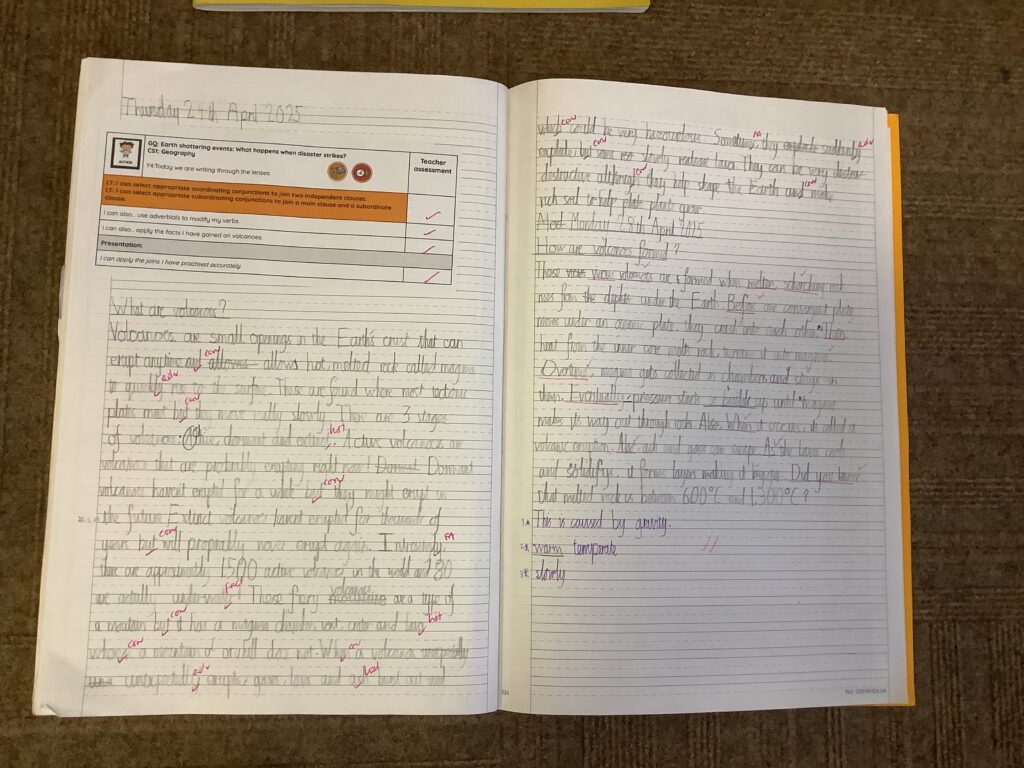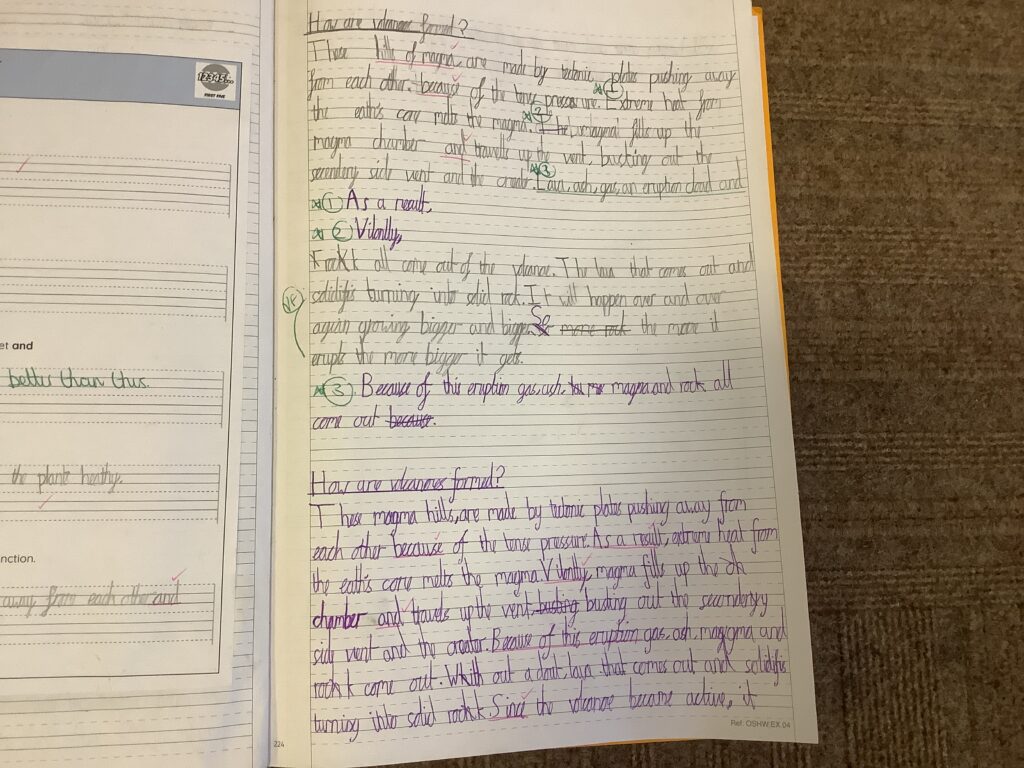We are currently writing two independent plot points to apply what we have been taught. We are doing a great job 🙂
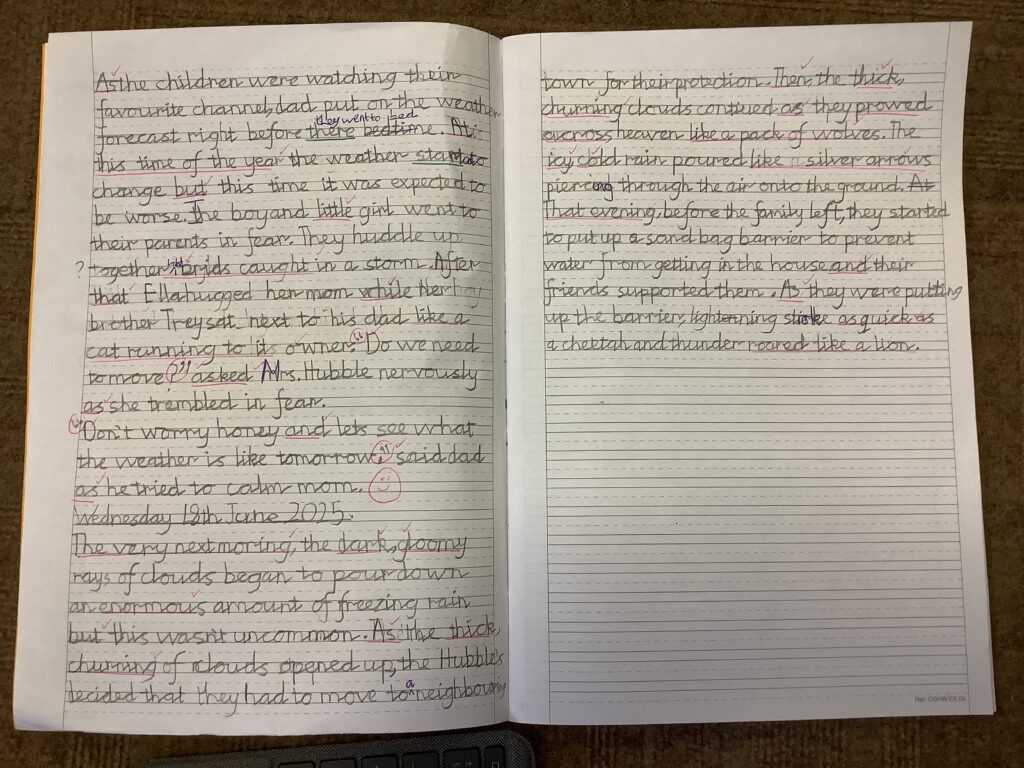
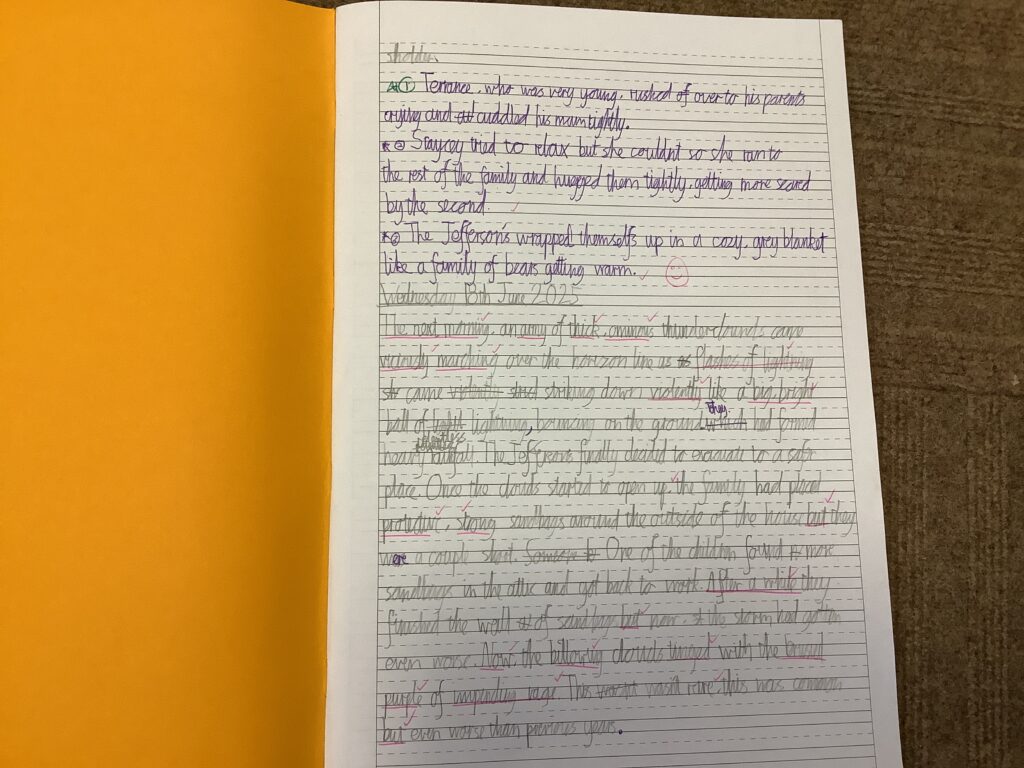
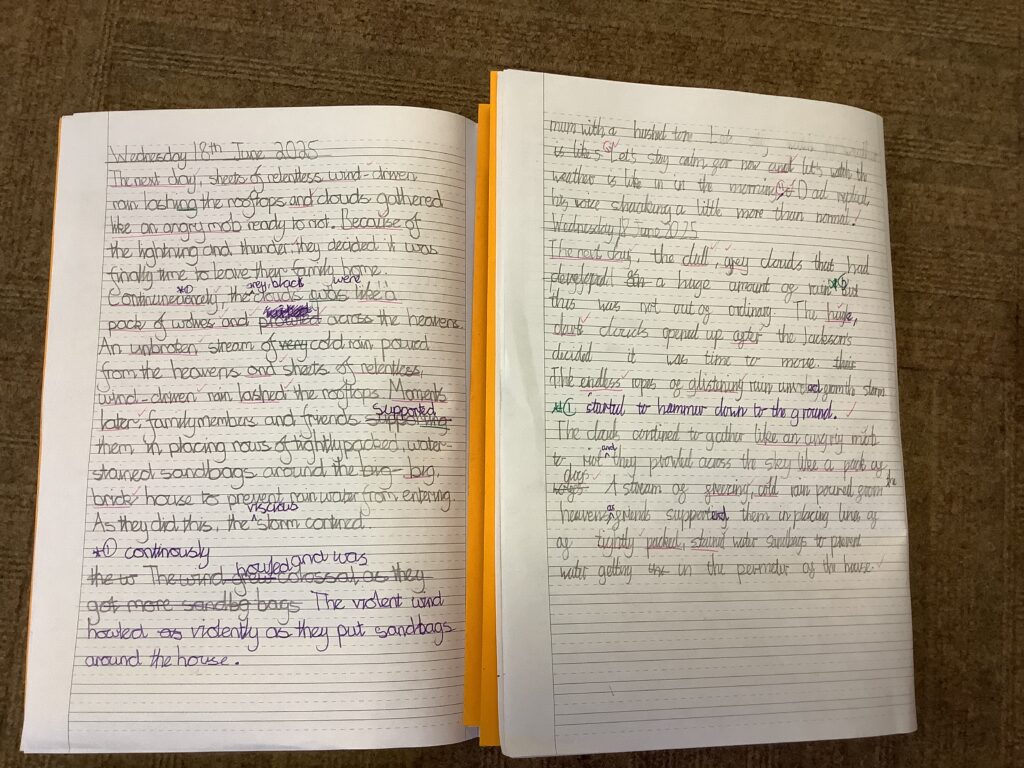
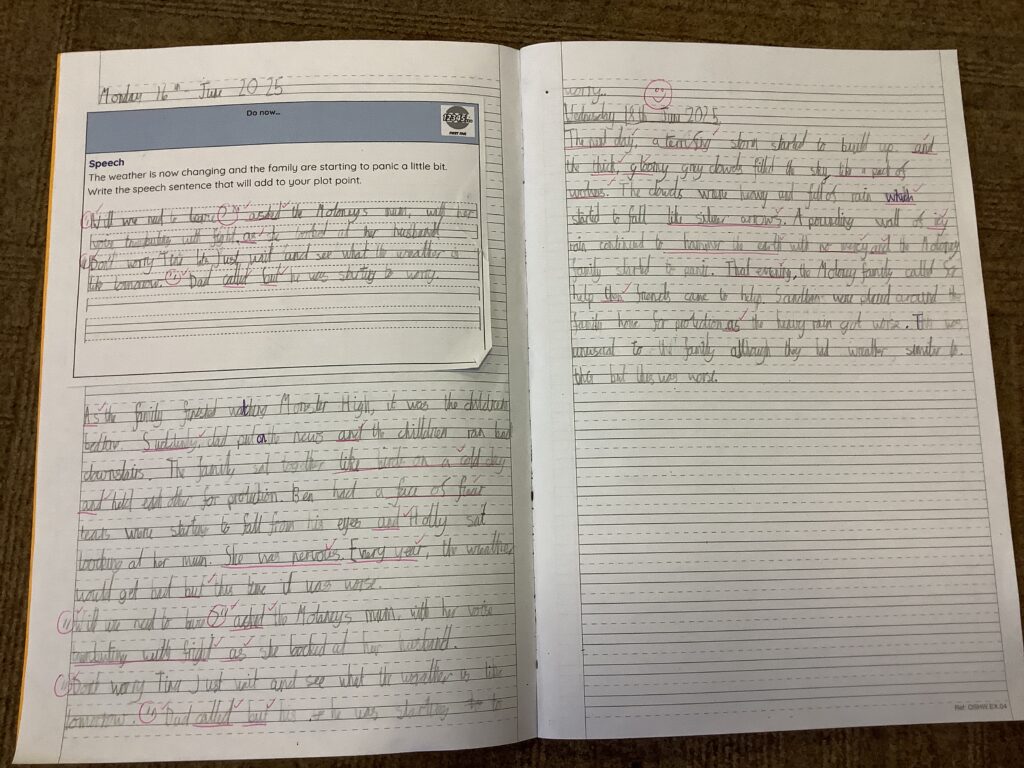
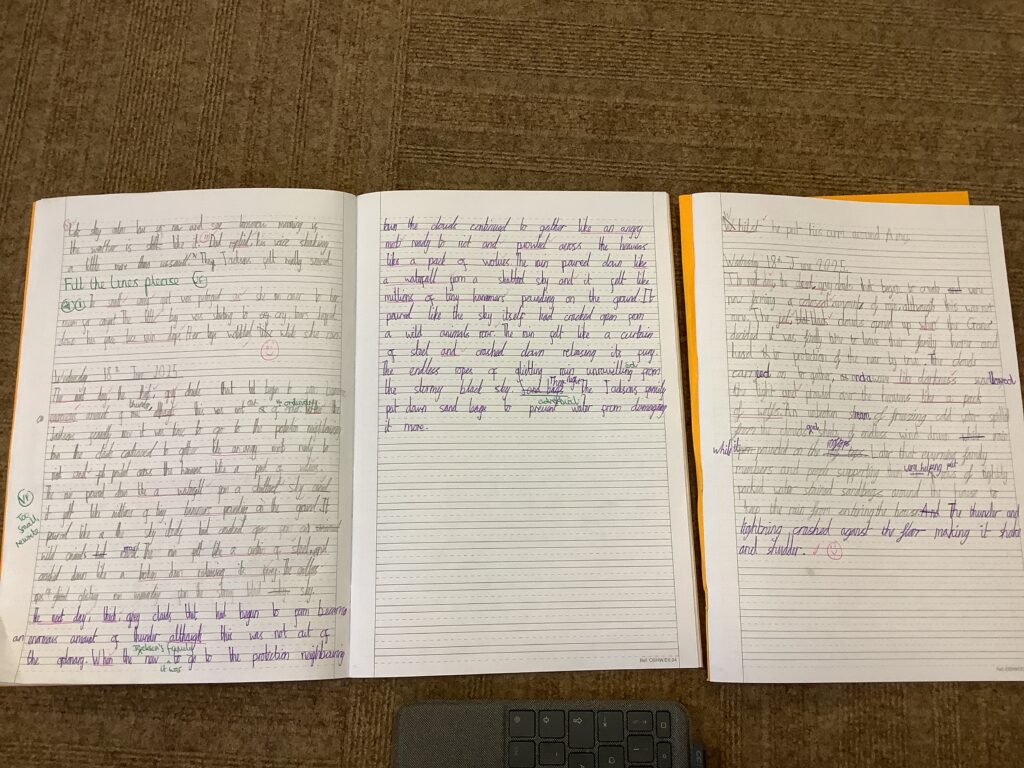
We are currently writing two independent plot points to apply what we have been taught. We are doing a great job 🙂





MT busy working on their letter formation 🙂
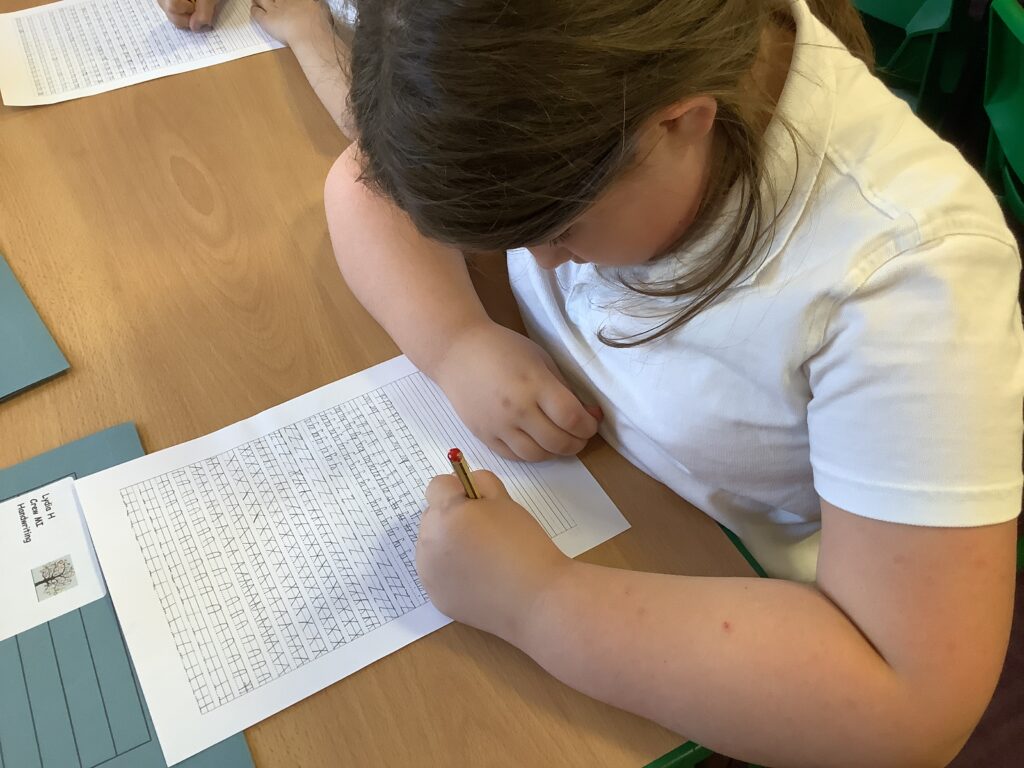
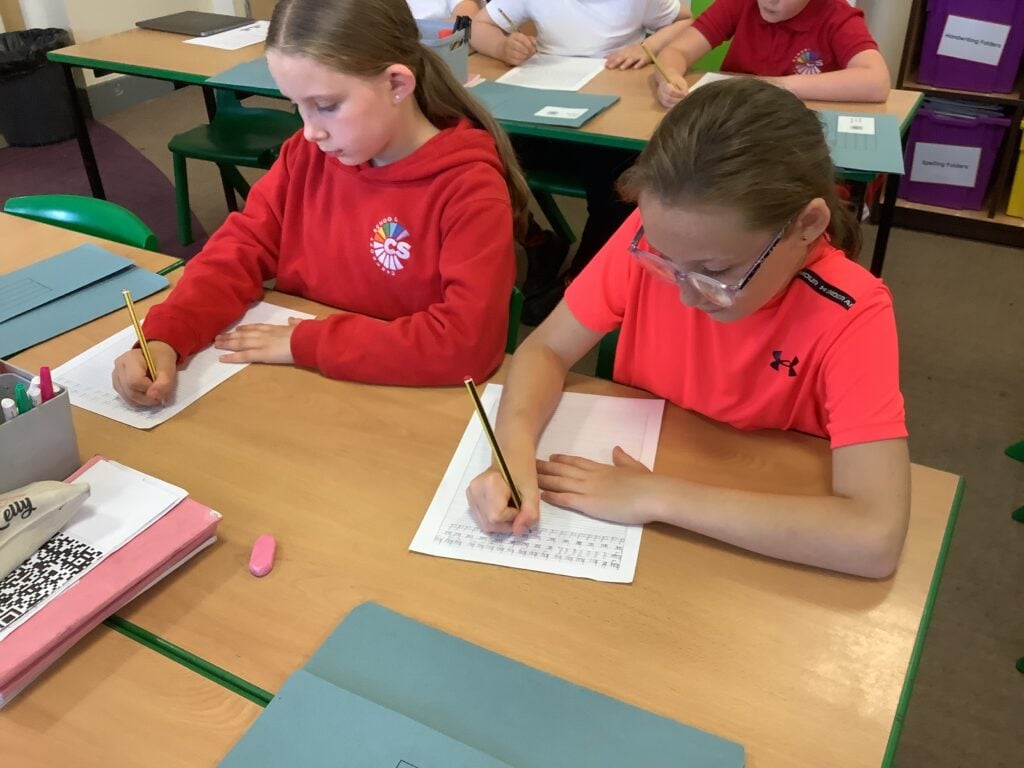
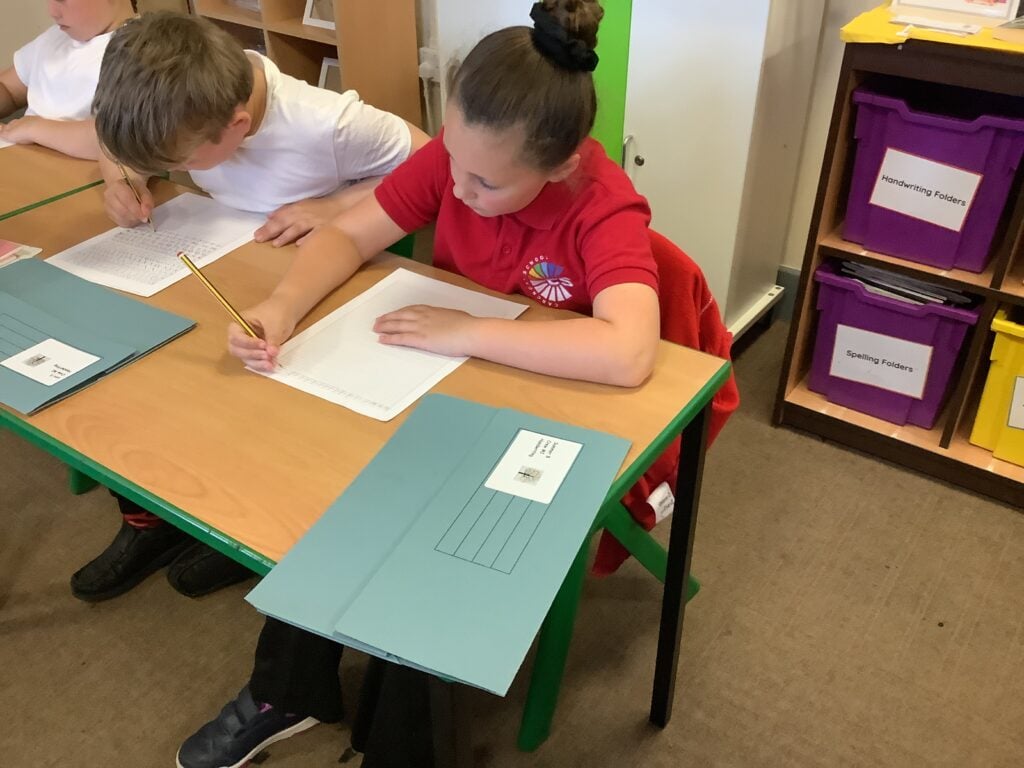
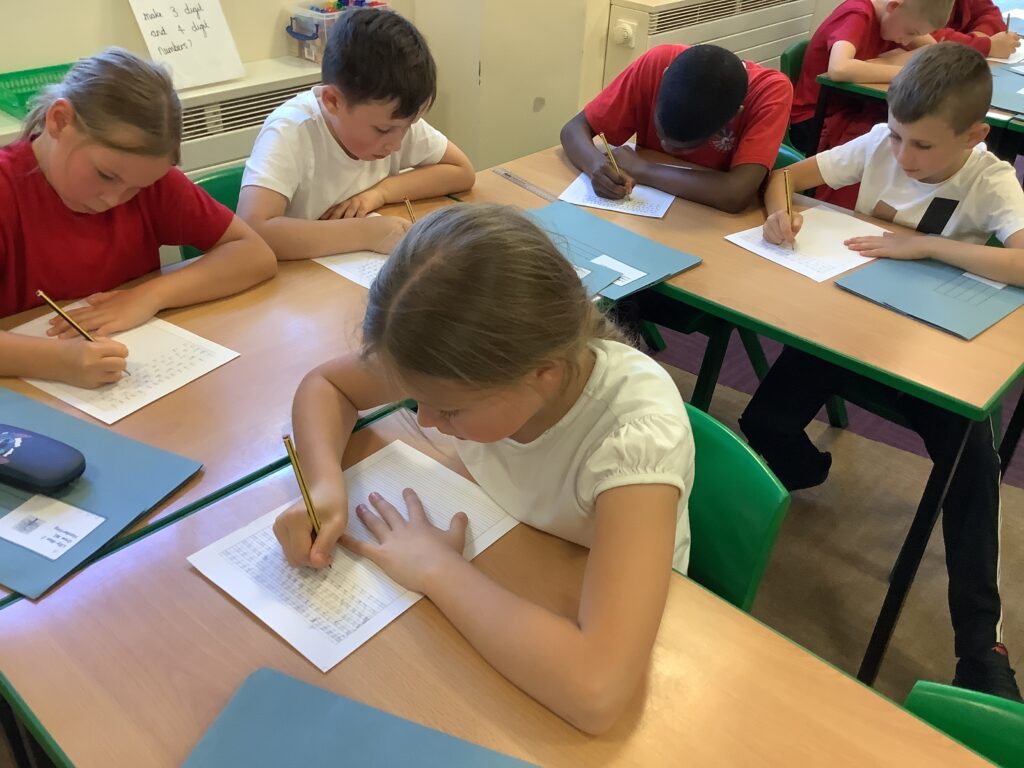
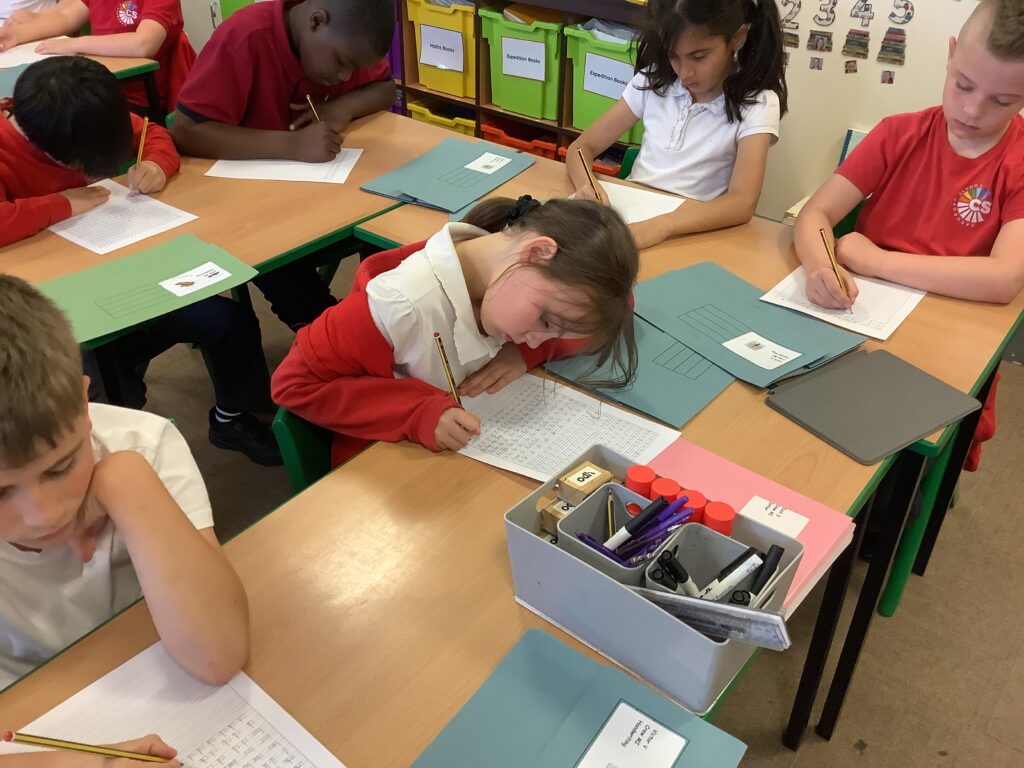
This week the children have been practicing their blending and letter formation. The children loved the different textures and forming letters with different mediums.
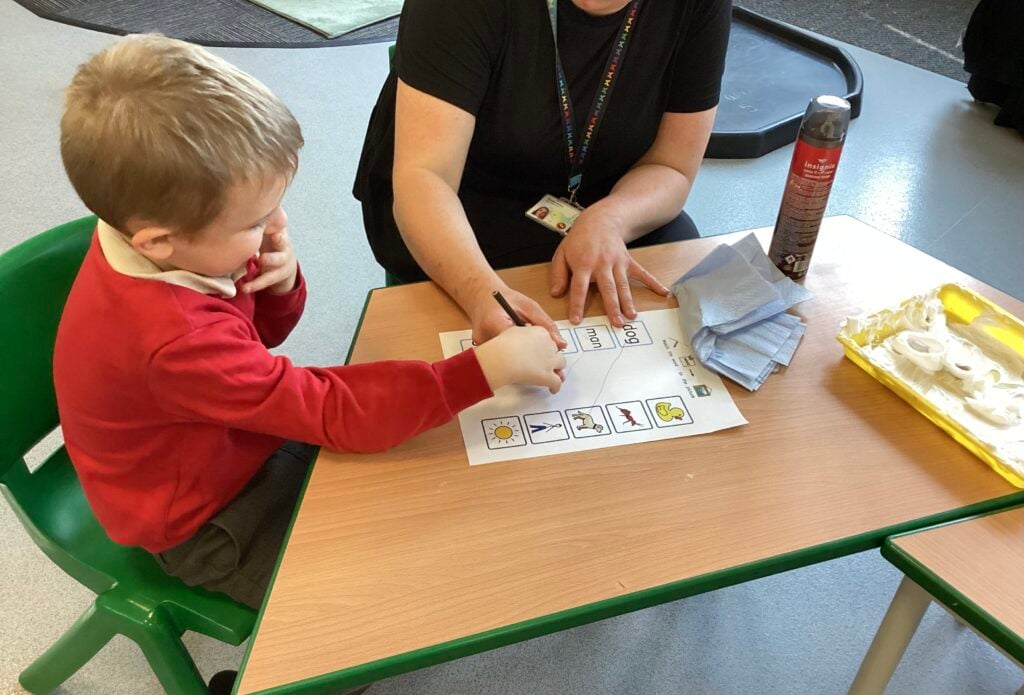
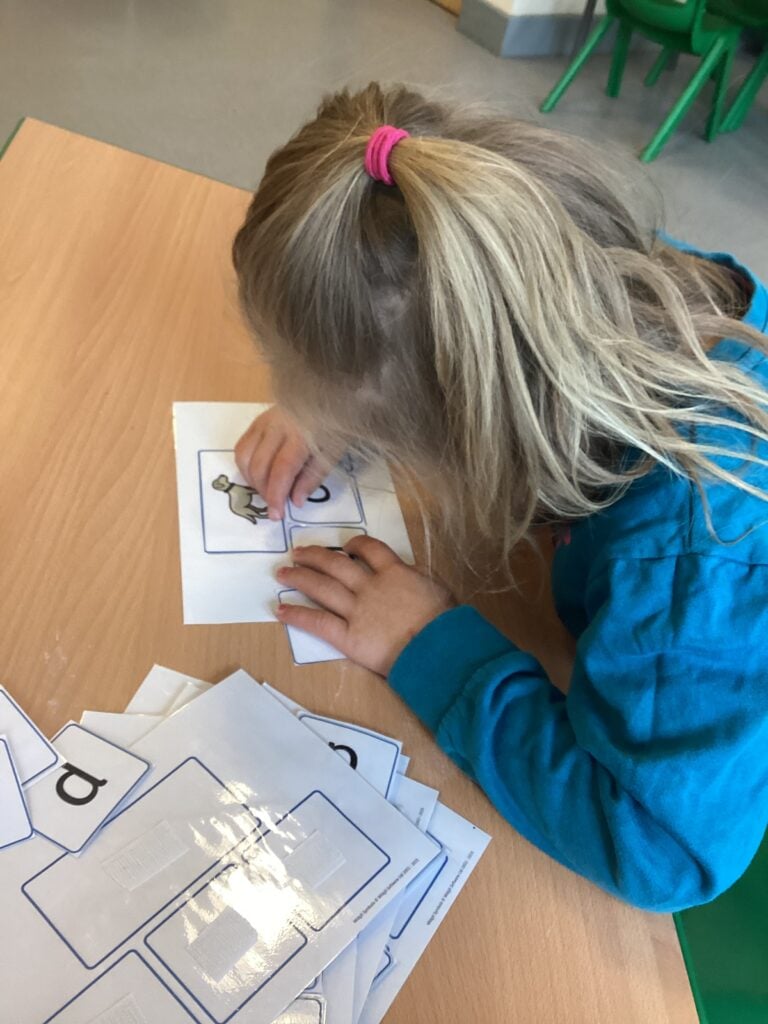
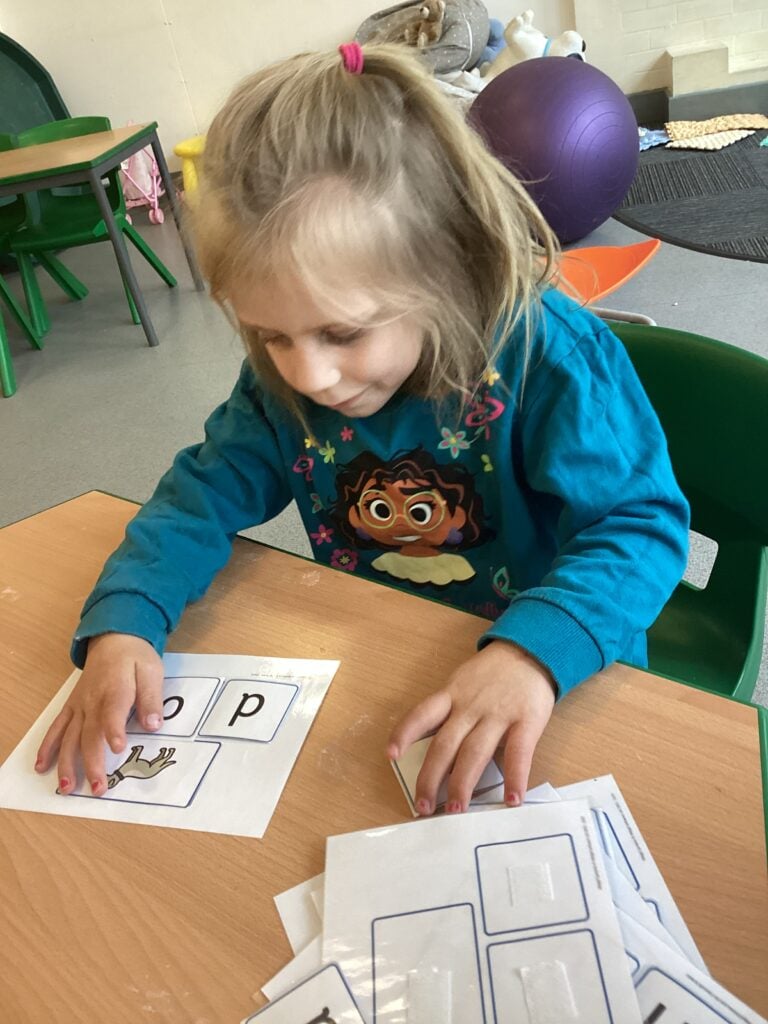
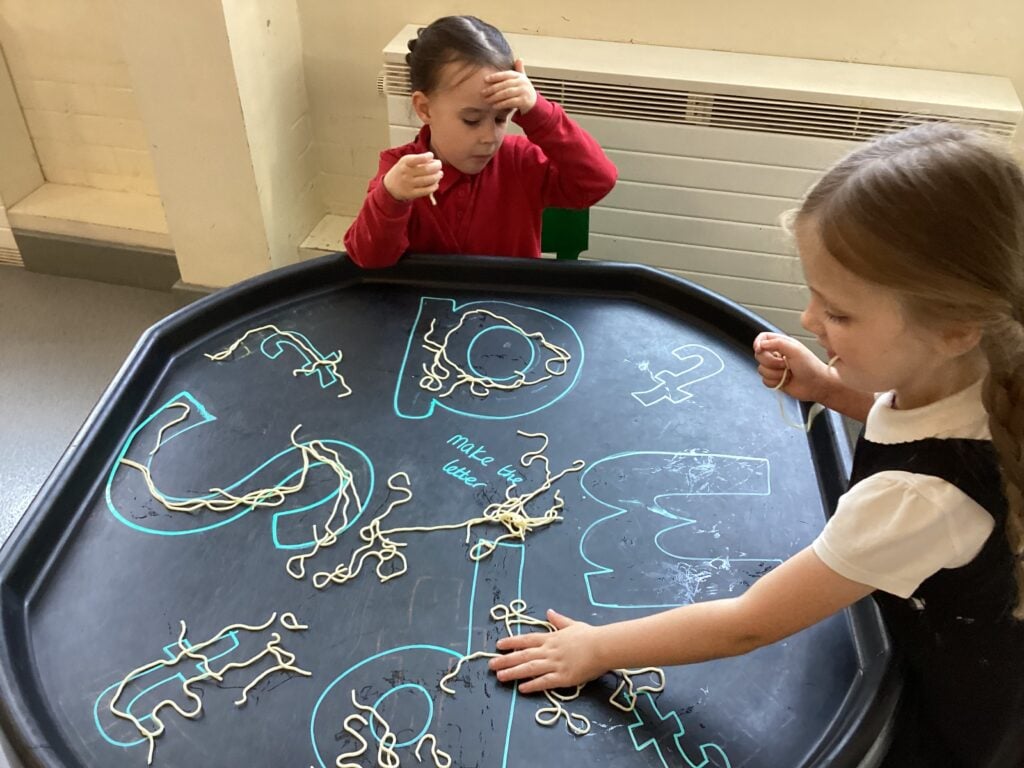
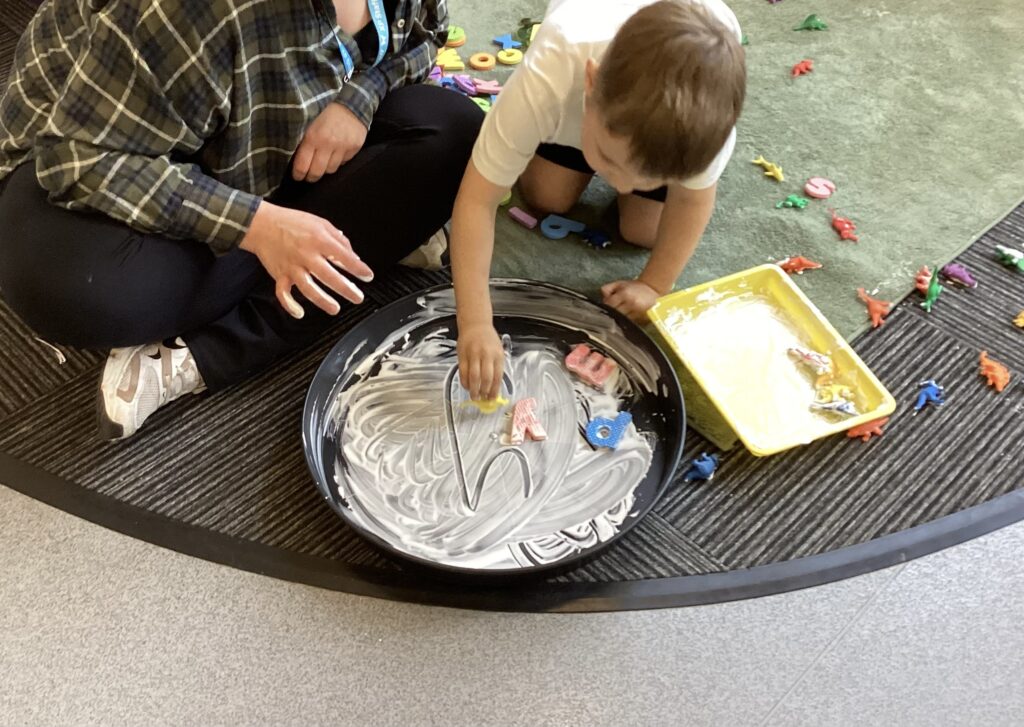
Today we worked really hard on an extended activate where we recapped adjectives and expanded noun phrases. We linked our work to some of the pictures we are using throughout our plot points. The chotting part of our session allowed us to build ideas around the notice and hearing lense along with applying our knowledge of adjectives and expanded noun phrases. These ideas supported our shared writing then we were able to apply some of our ideas to our own writing. We are really loving our new writing unit and are excited to finish our first plot point tomorrow.
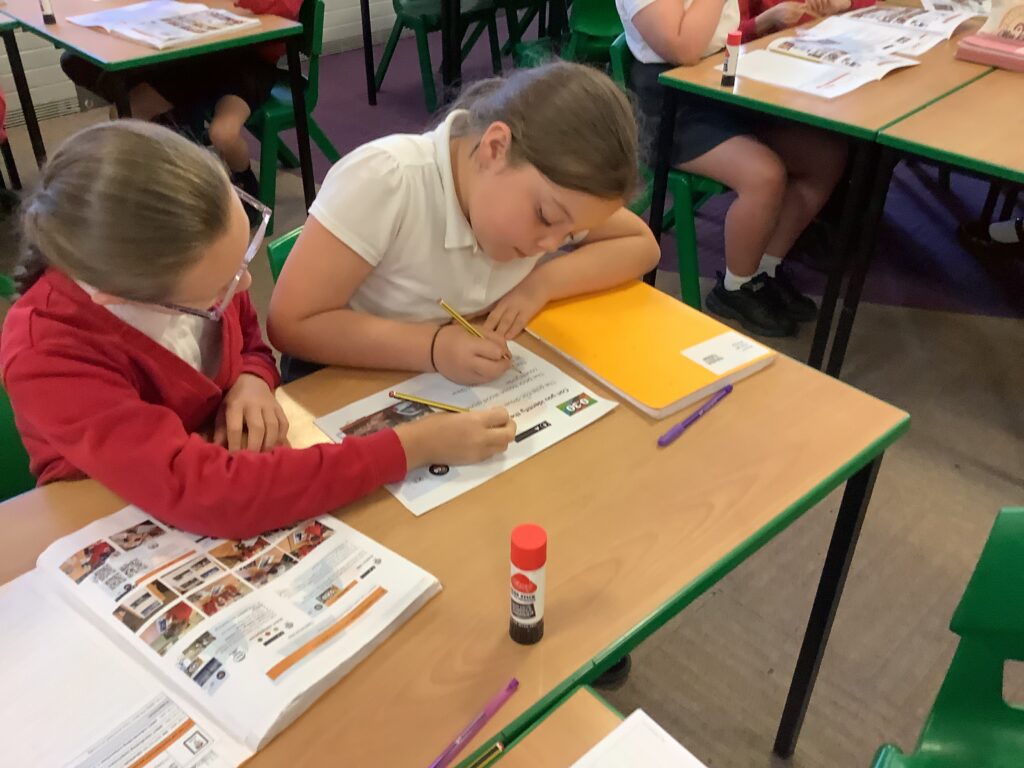
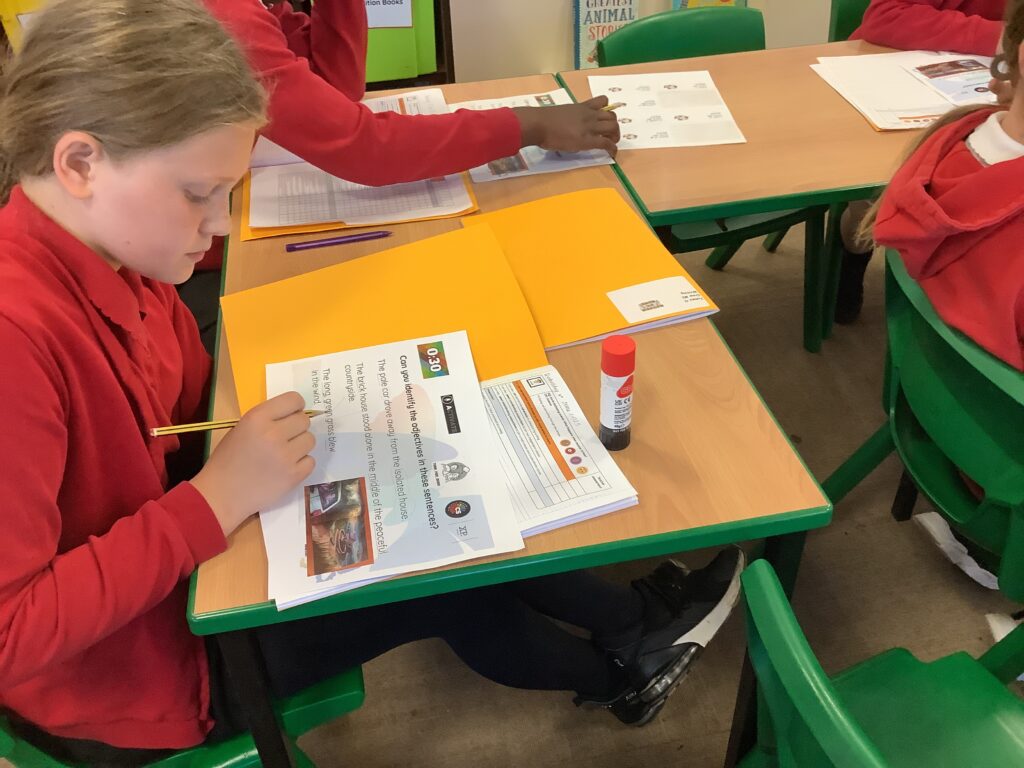
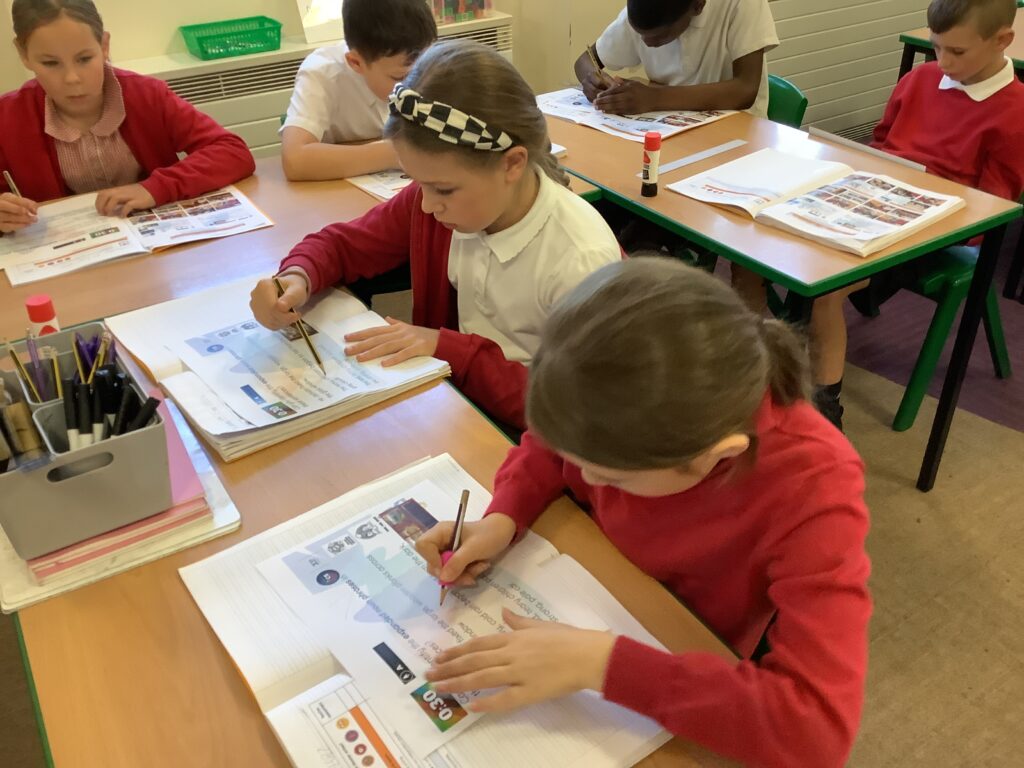
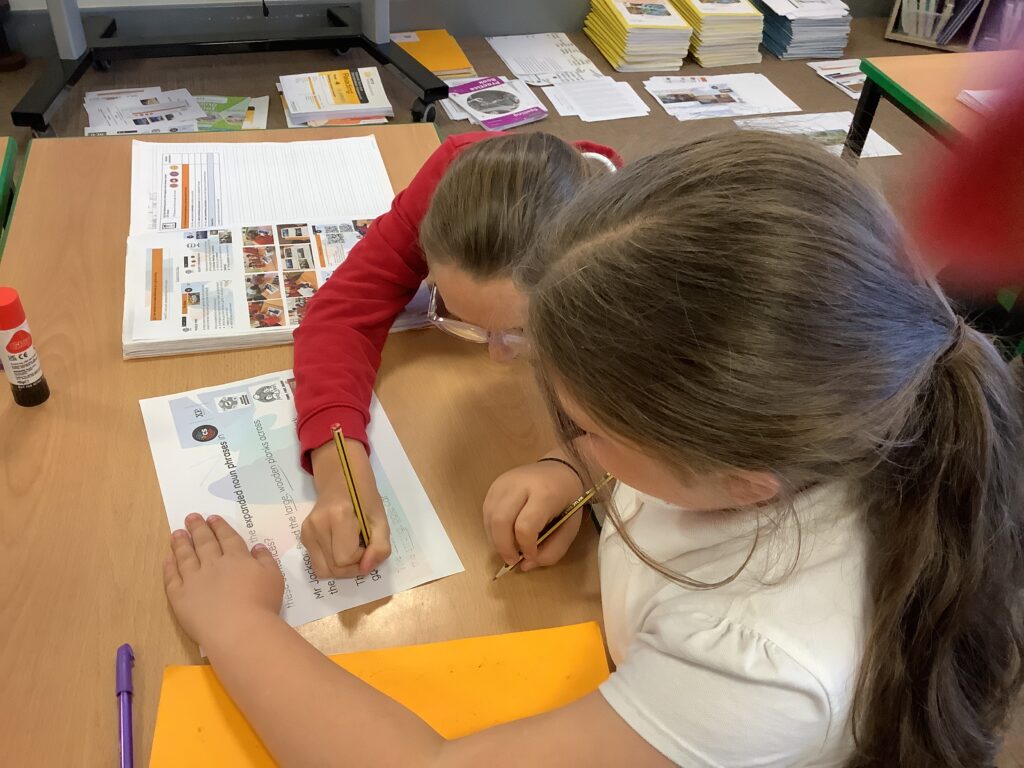
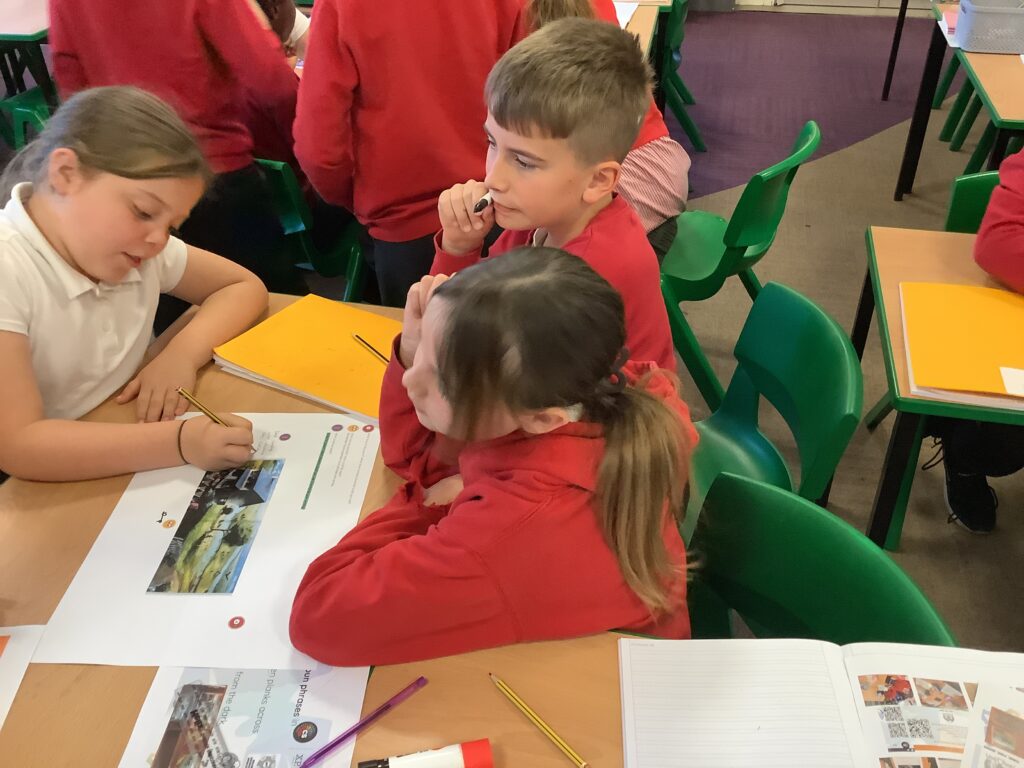
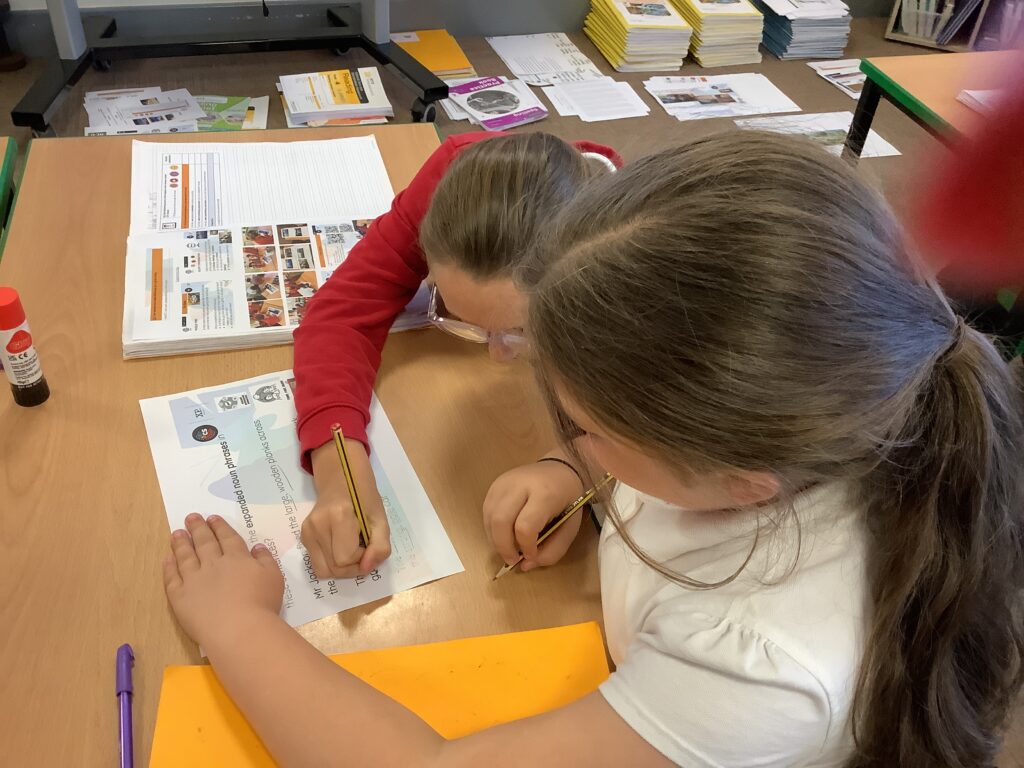
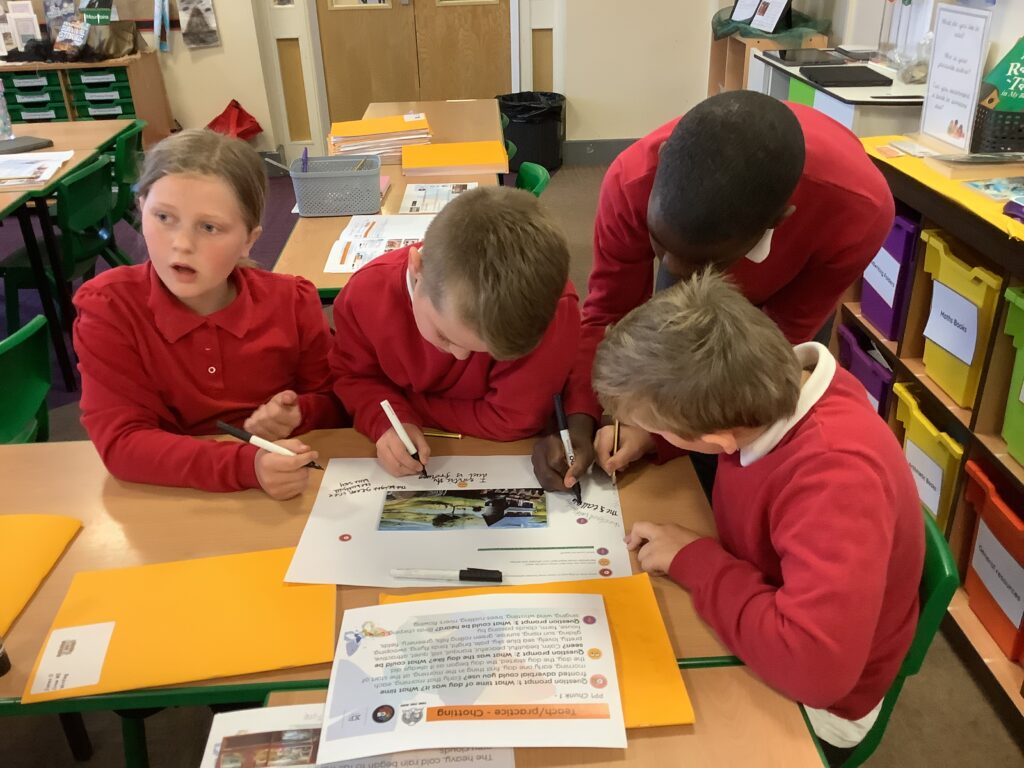
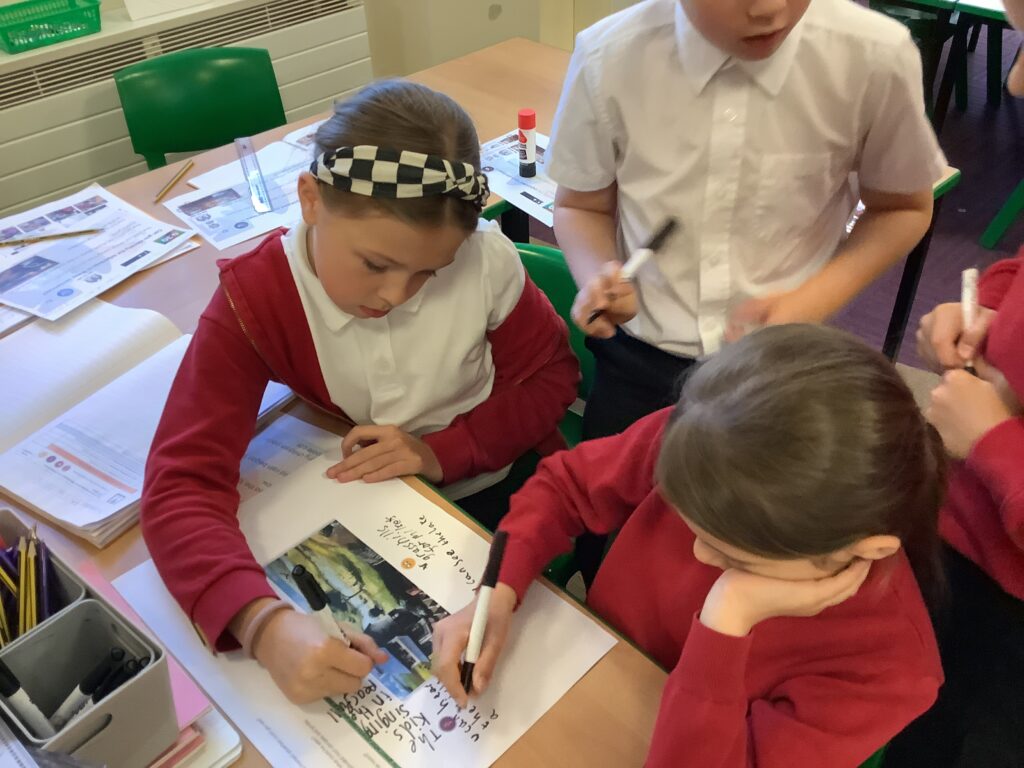
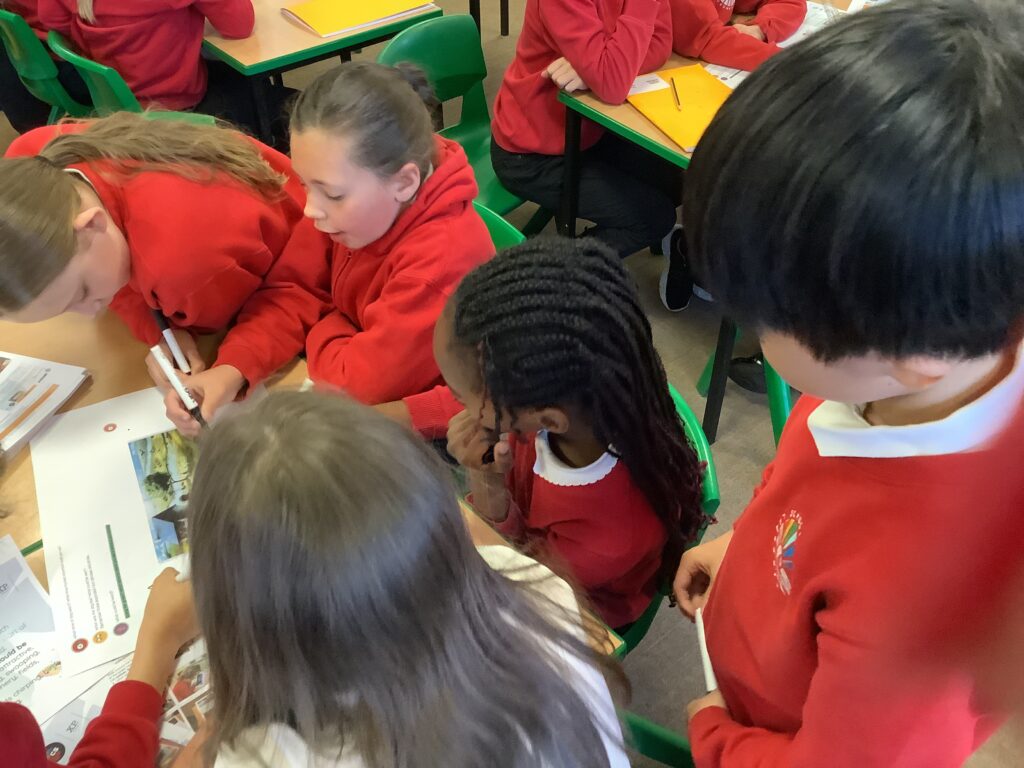
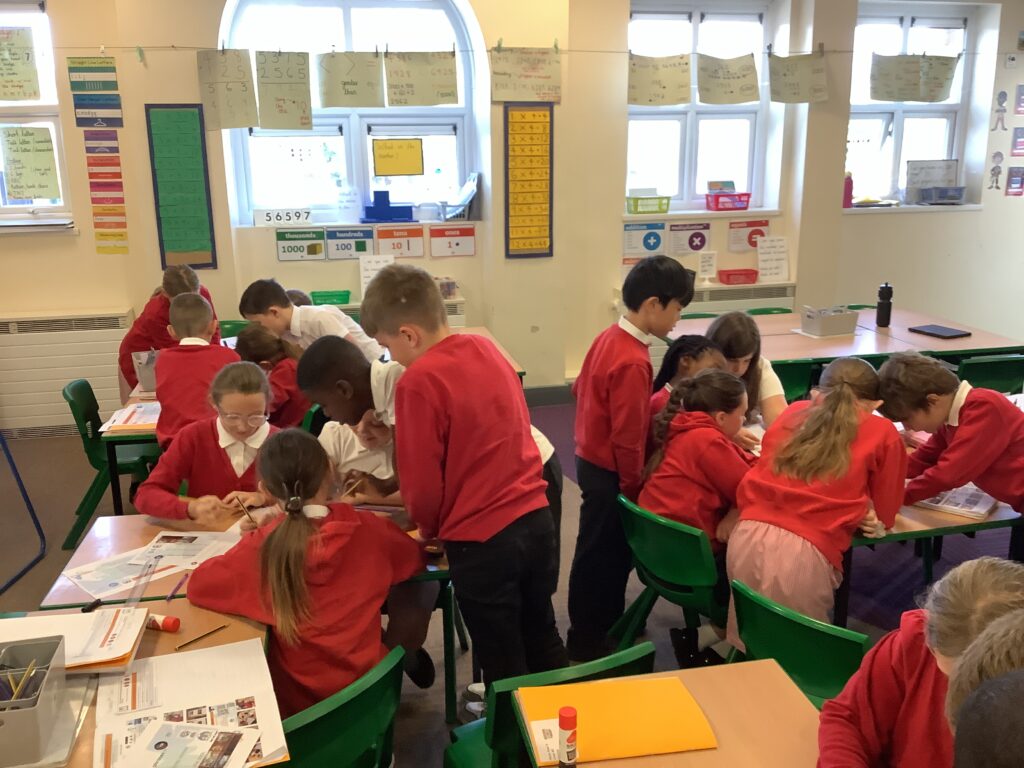
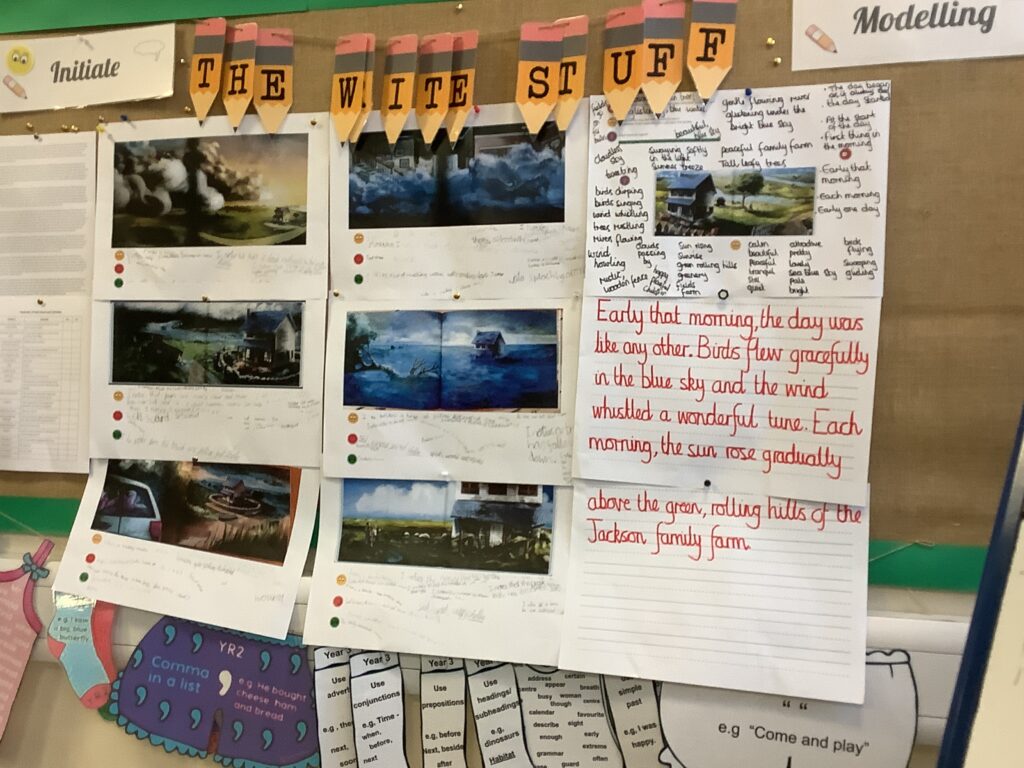
Today we started our next writing unit- a 3rd person narrative using a picture book called ‘Flood’. After exploring the front cover and blurb, we took part in a silent conversation where we explored different pictures from the story. We used the notice, feelings and action lenses to note down our ideas. After sharing these in mini crews and with the whole crew, we then used our inference skills further to tell the story from the book using the pictures. We all showed lots of empathy towards the characters in the story and were shocked by the devastating consequences of flooding. We then worked in mini crews where we watched a series of clips to build further background knowledge on floods. We thought about what floods are, why they happen, the damage they cause, why they are dangerous and how they affect peoples lives. Finally we explored a model text, exploring the features we had discussed earlier in the lesson. We used our narrative checklist to find the features and we discussed their purpose. We really loved exploring the picture book and are all looking forward to creating our own stories!
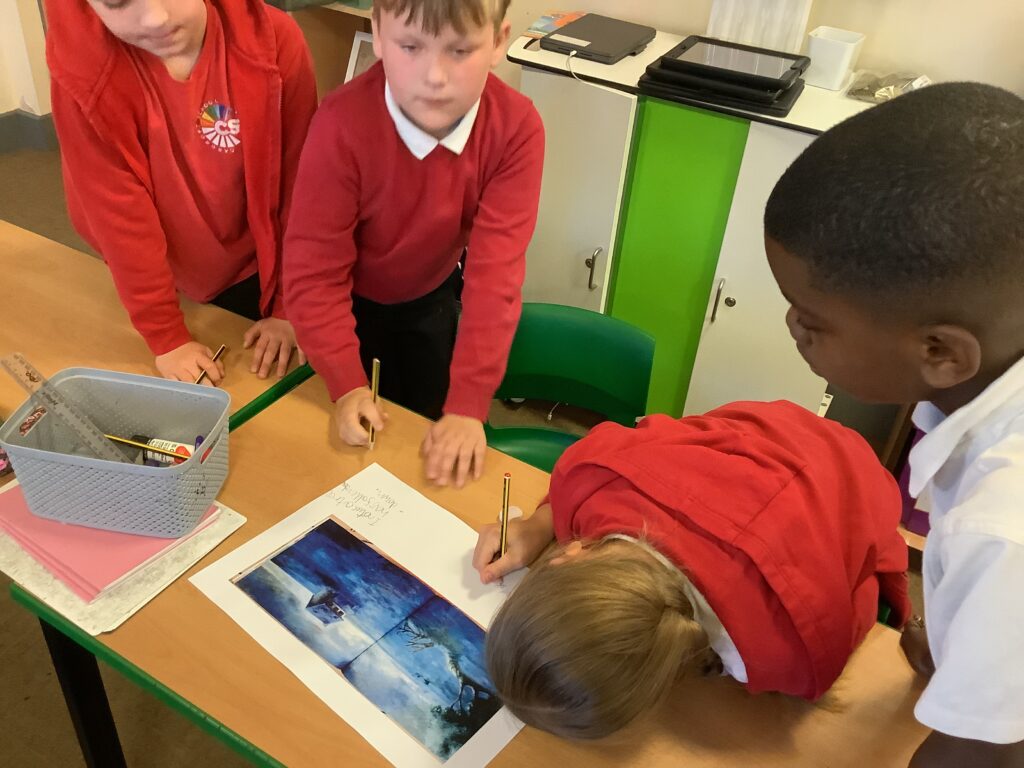
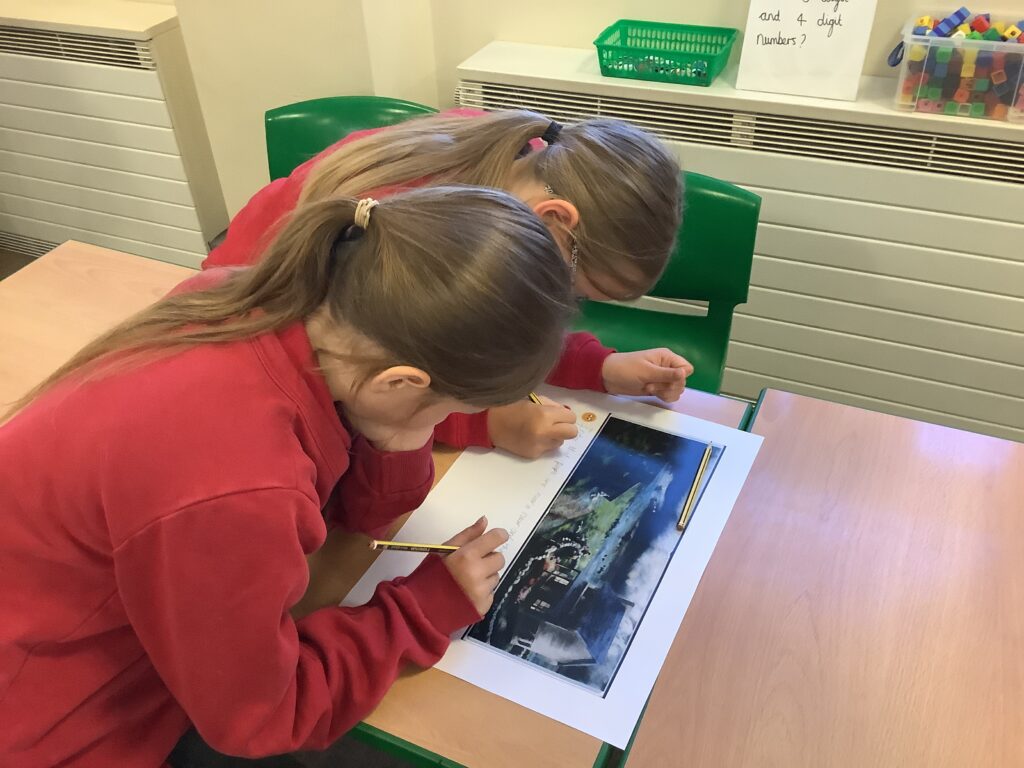
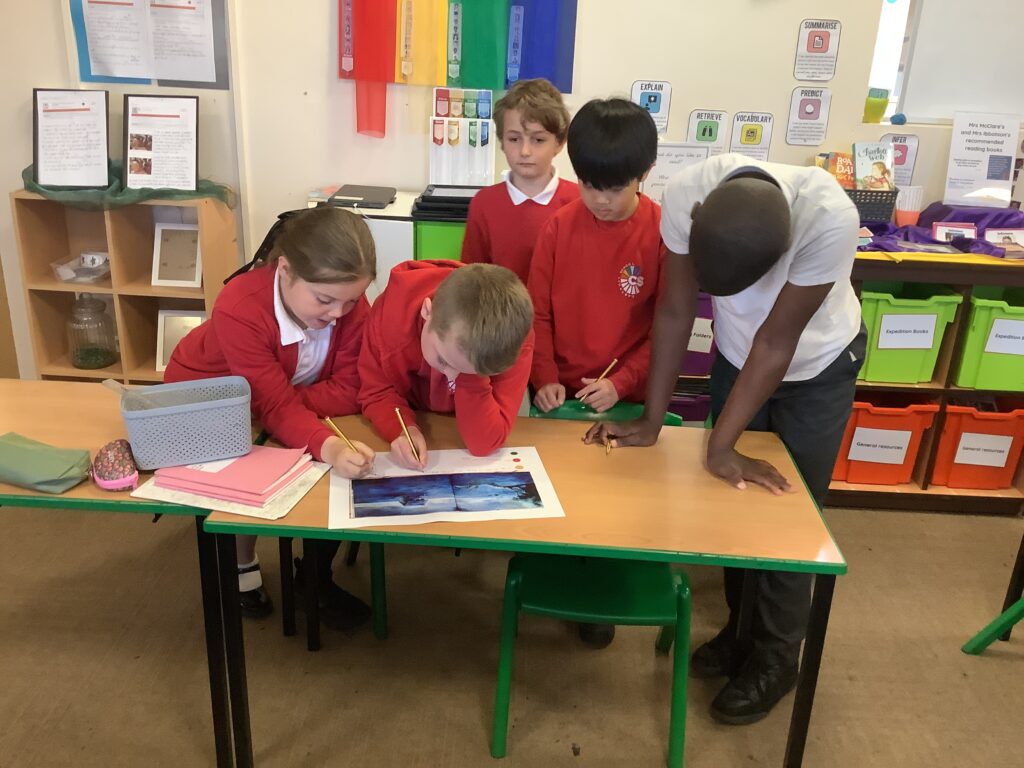
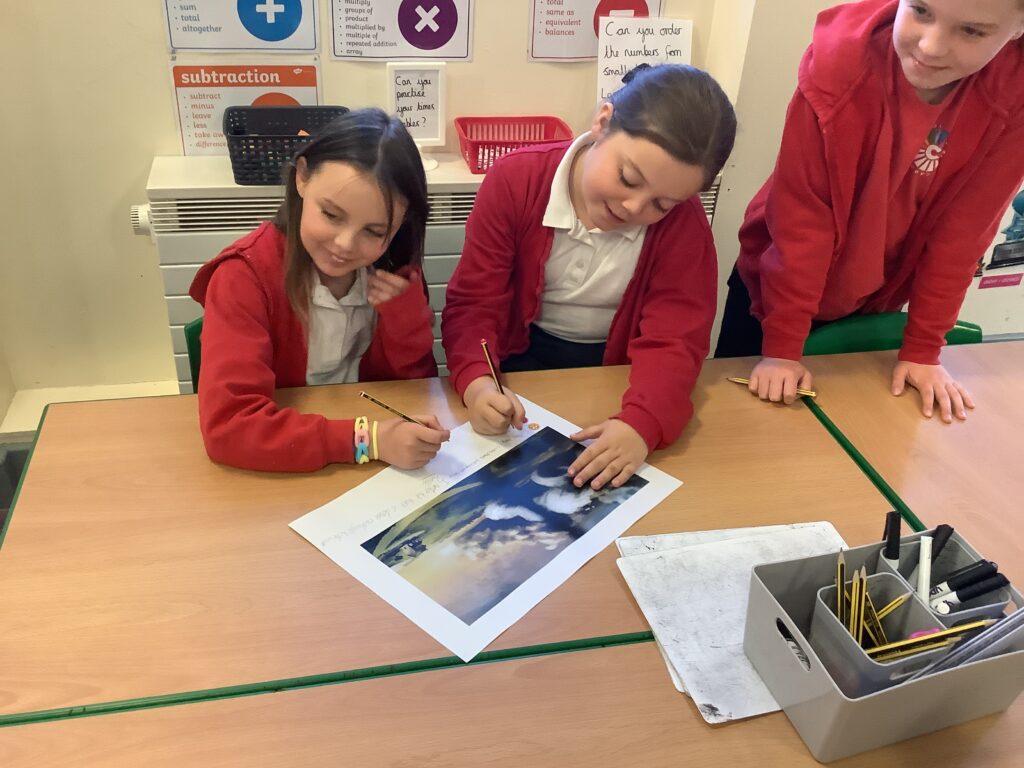
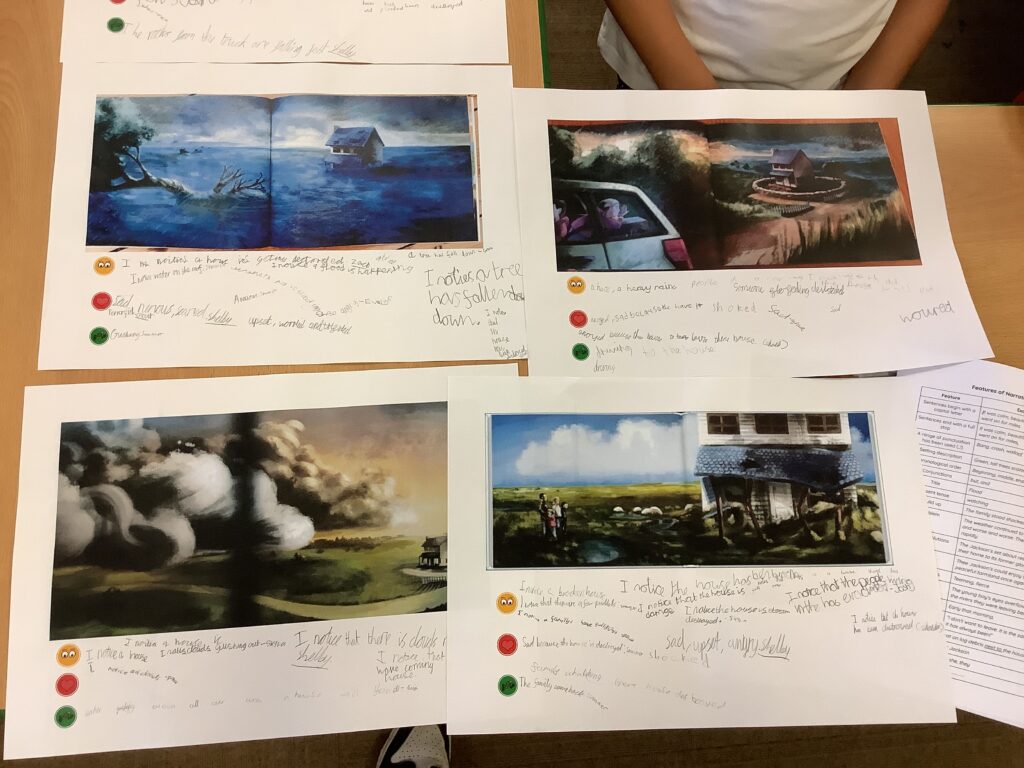
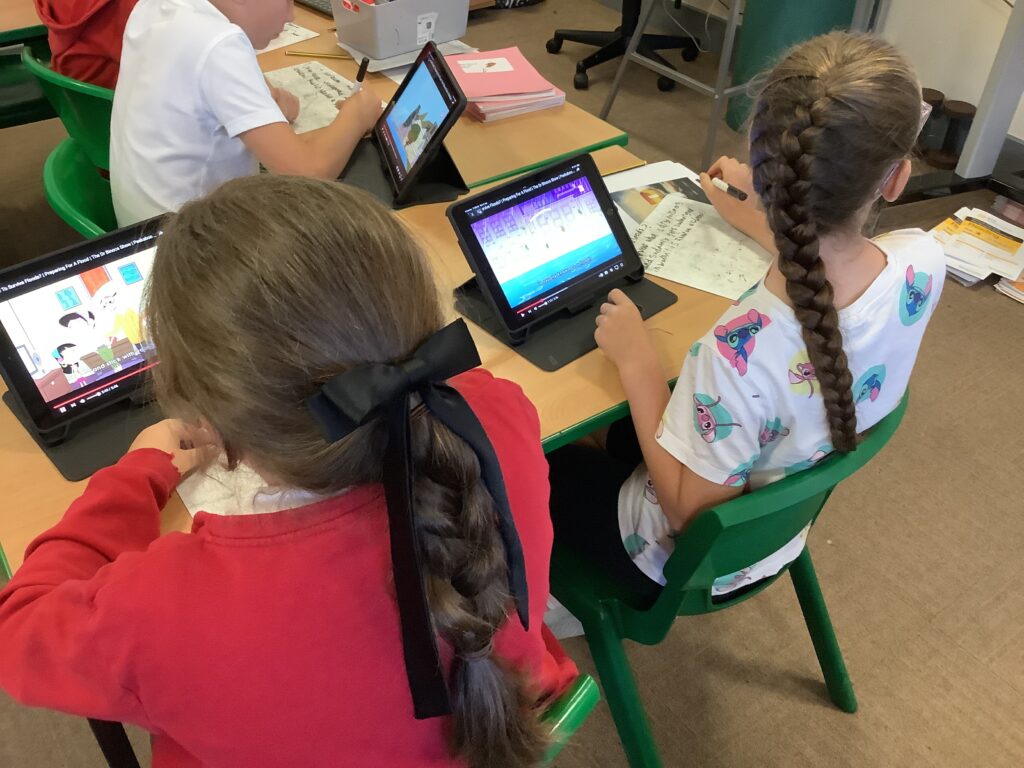
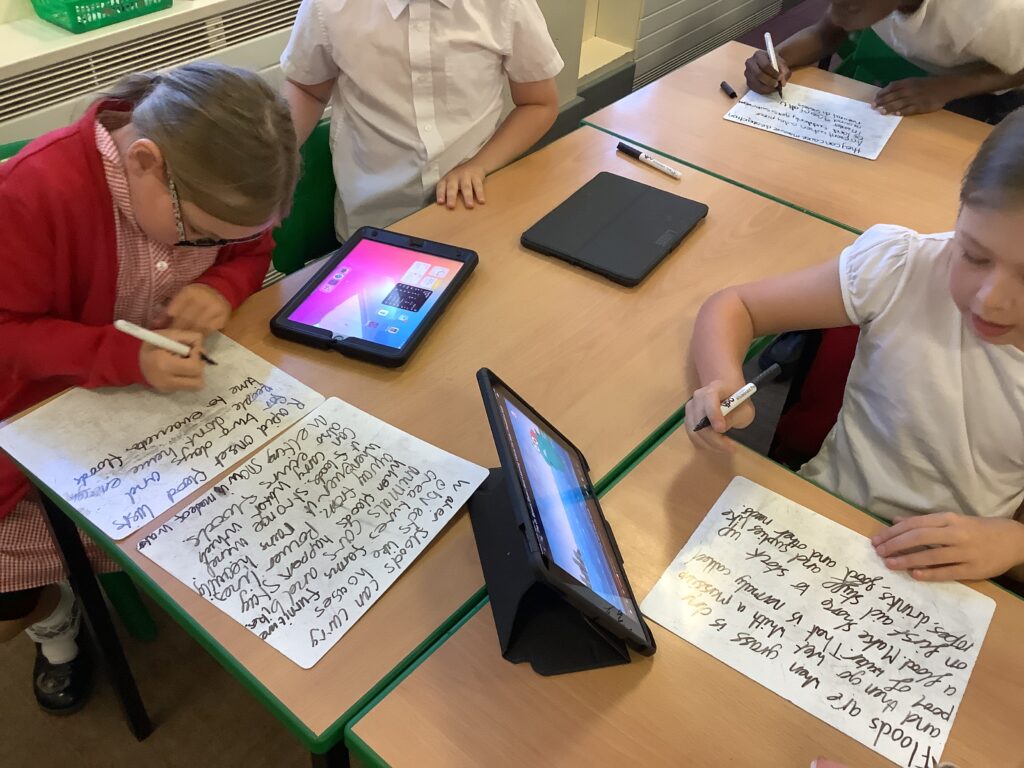
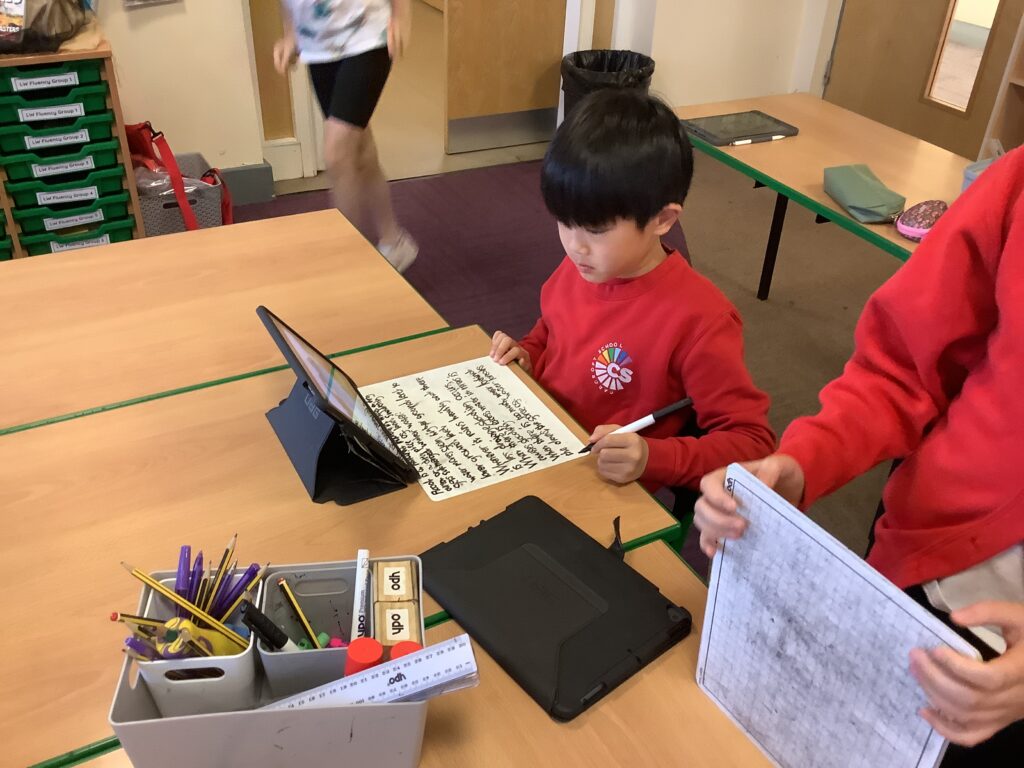
For our next plot point we drew and labelled what we thought Bob the astronaut would have in his packed lunch.
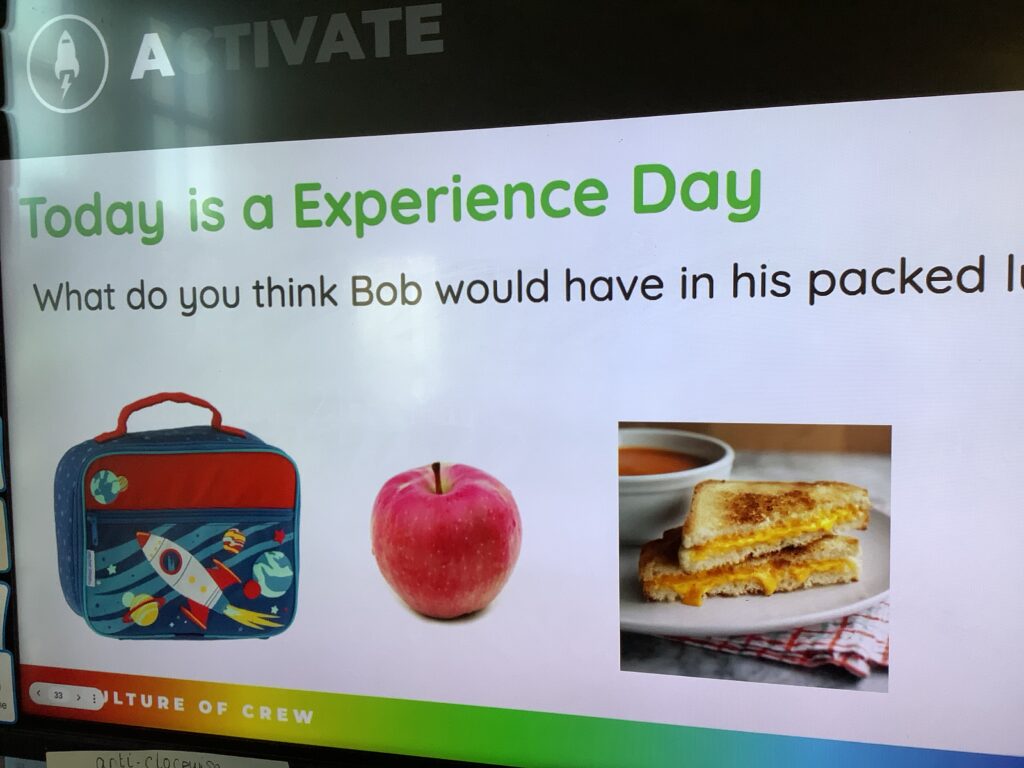
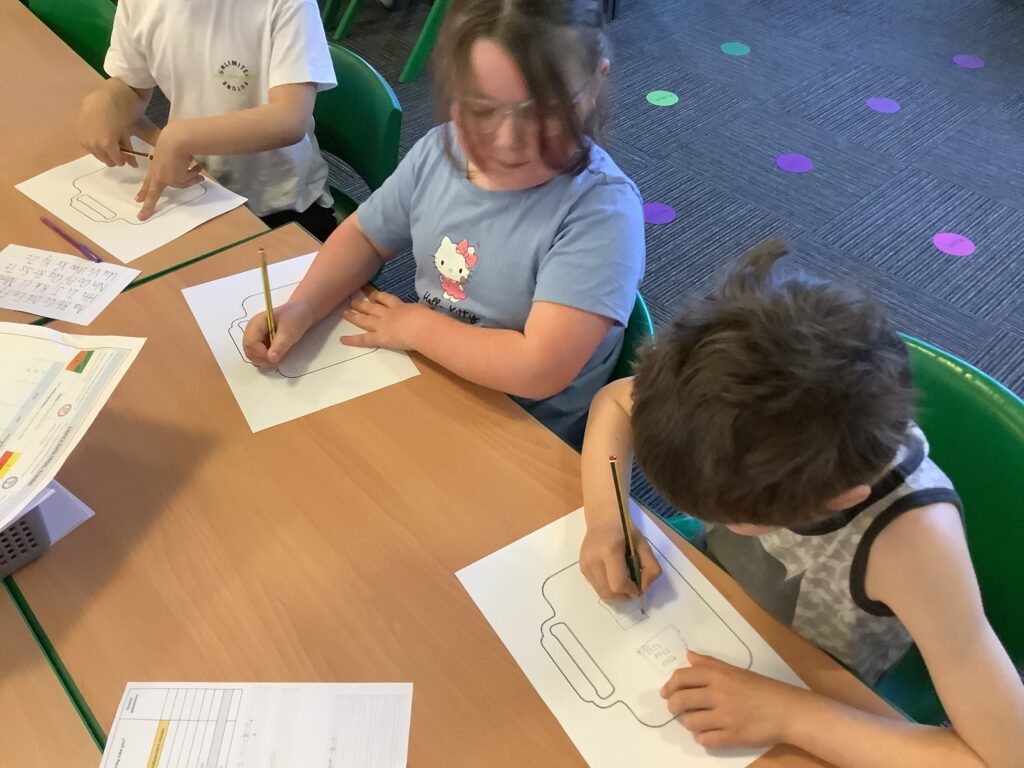
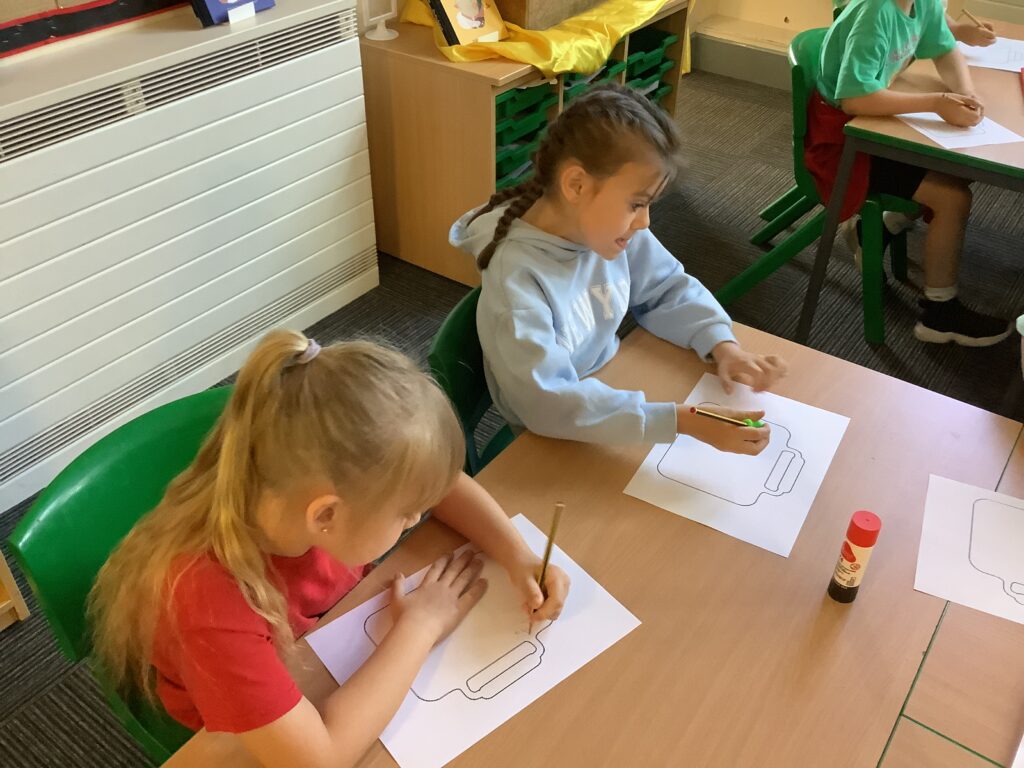
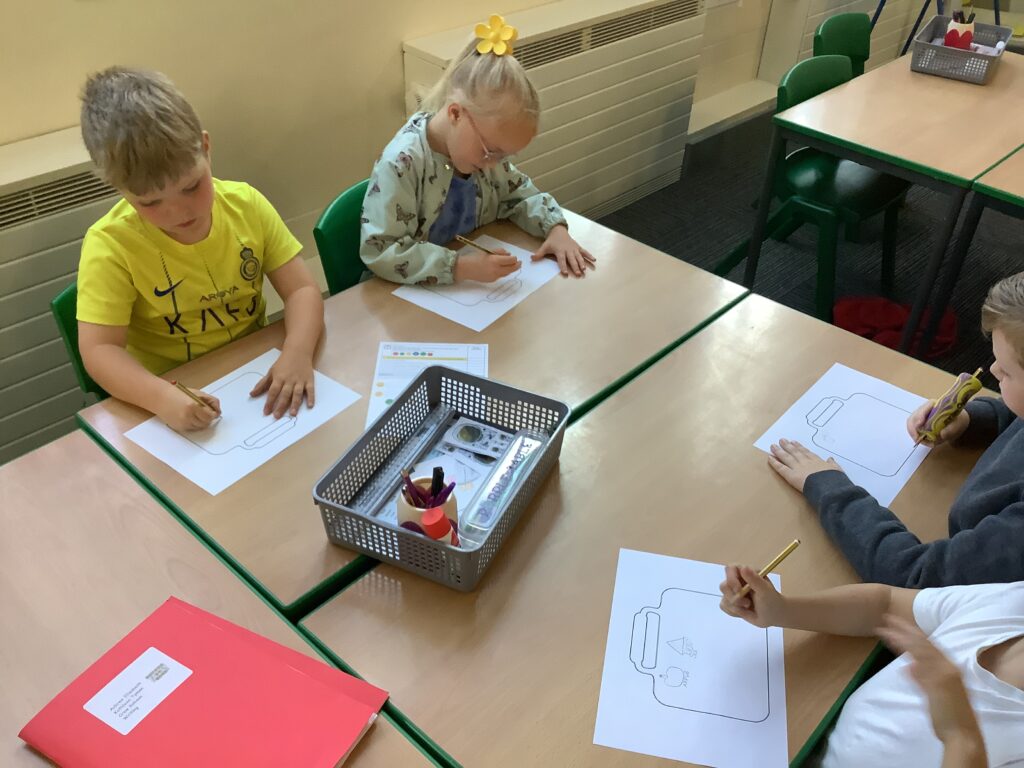
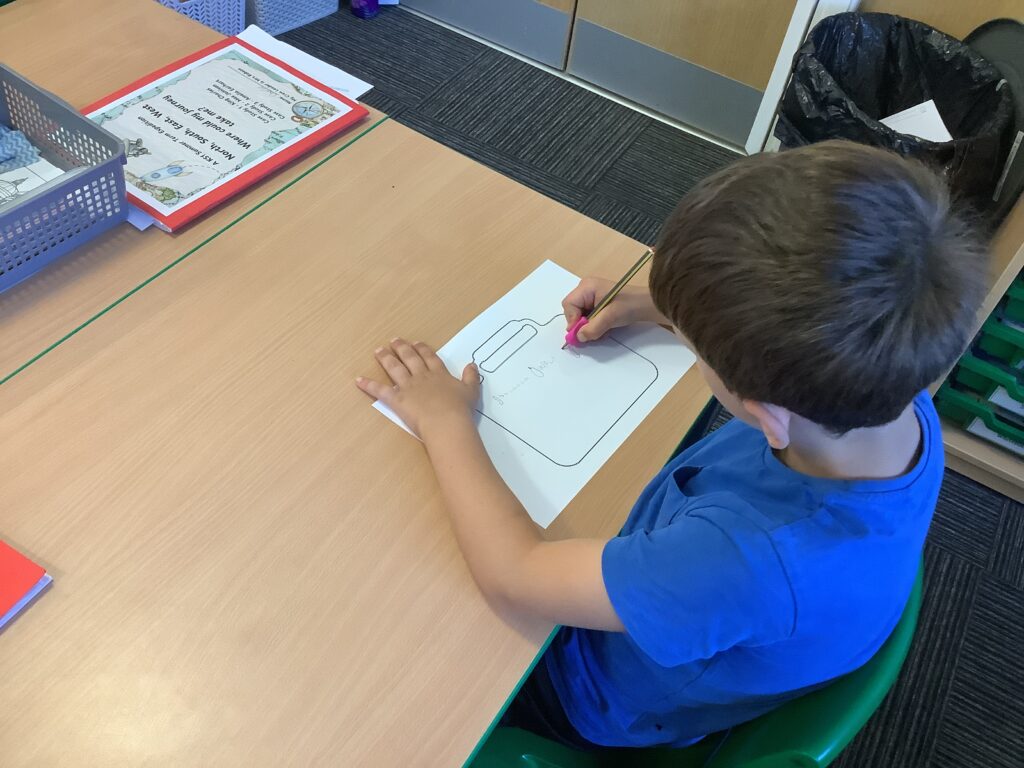
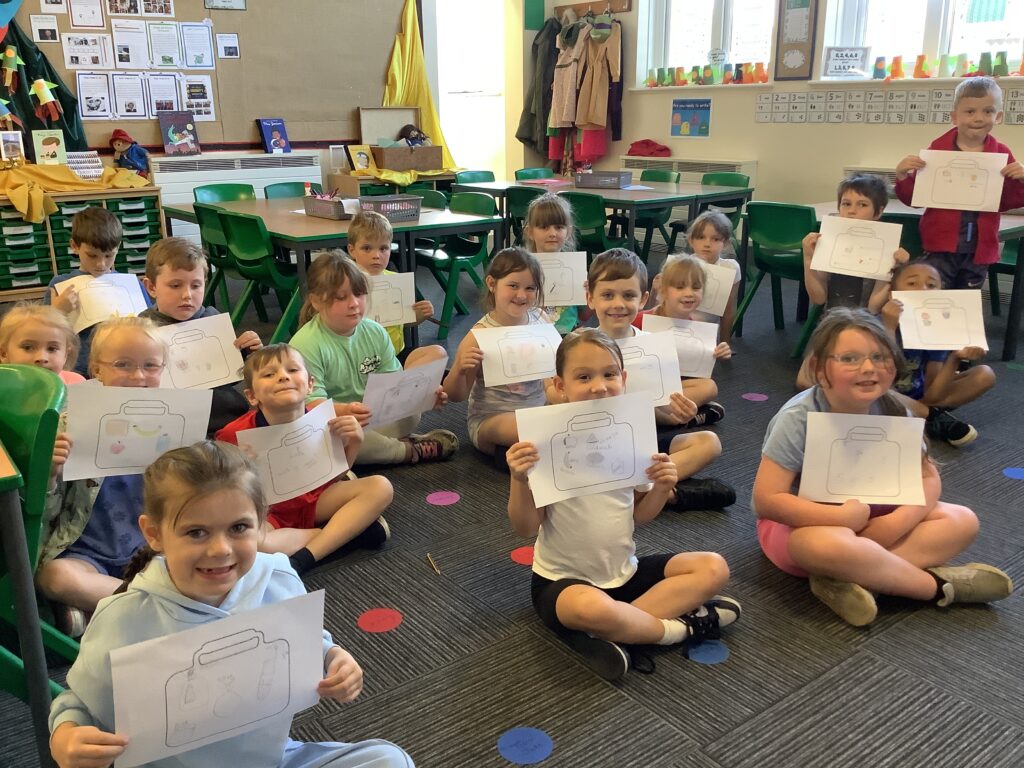
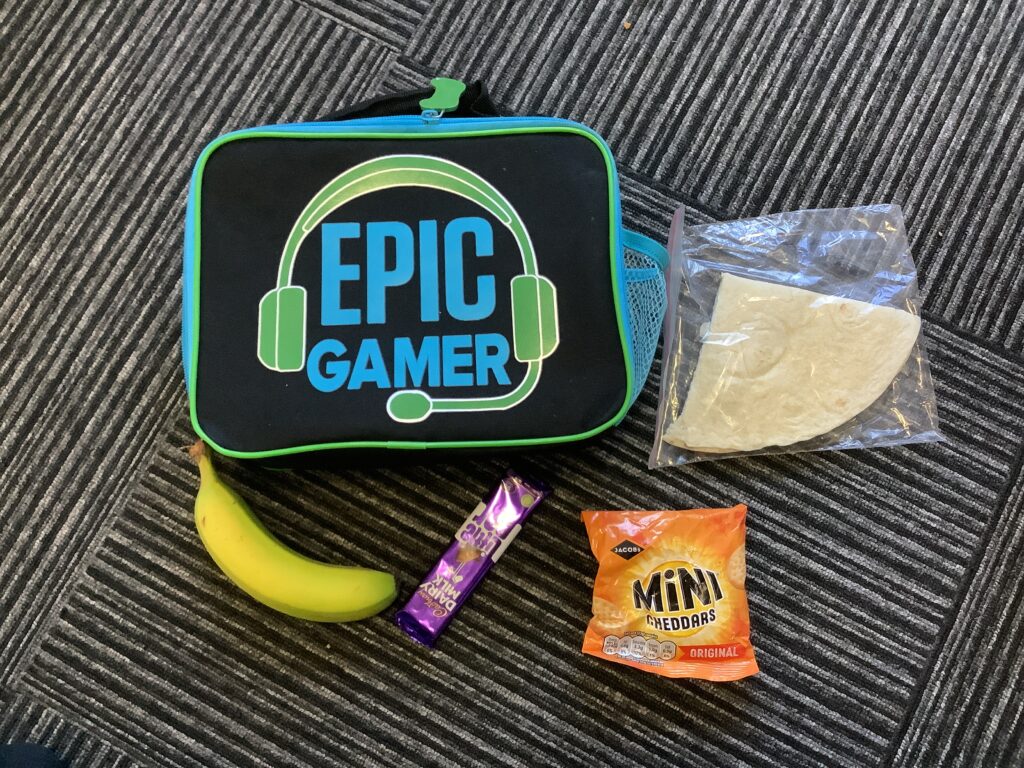
There were lots of food guesses!
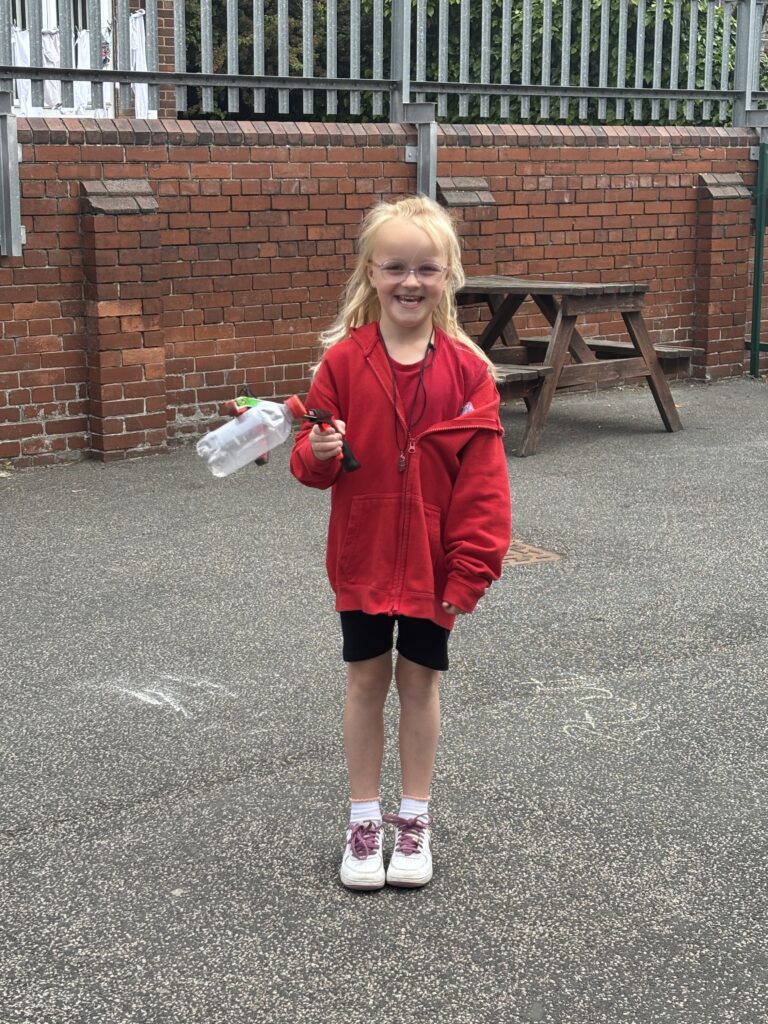
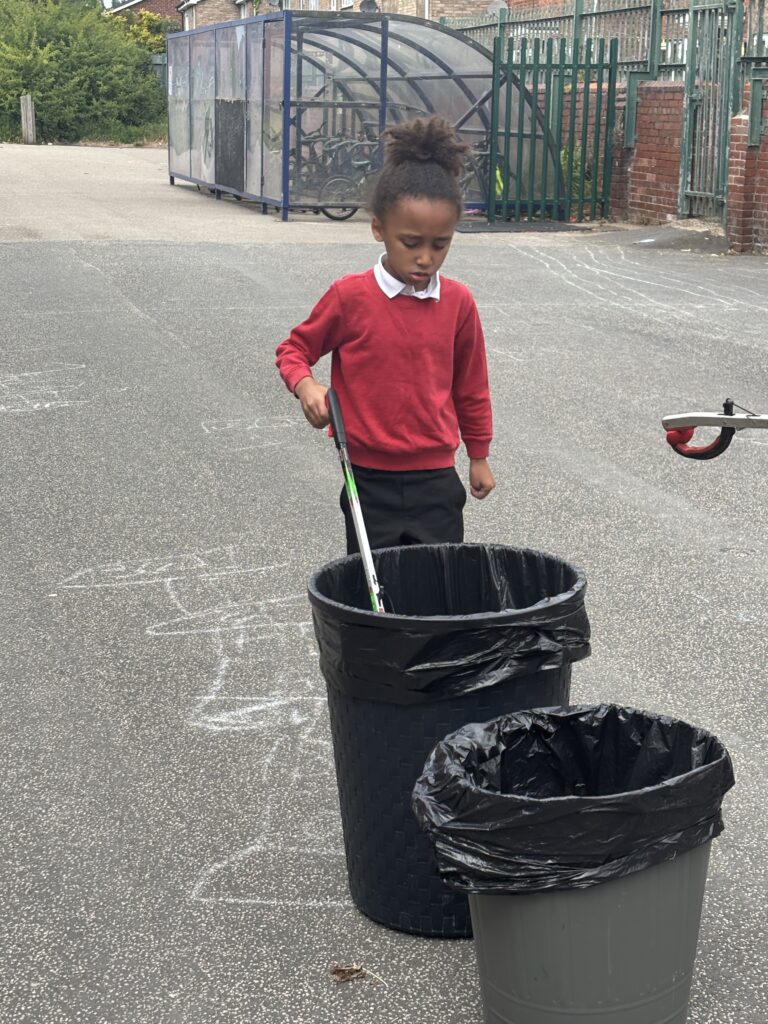
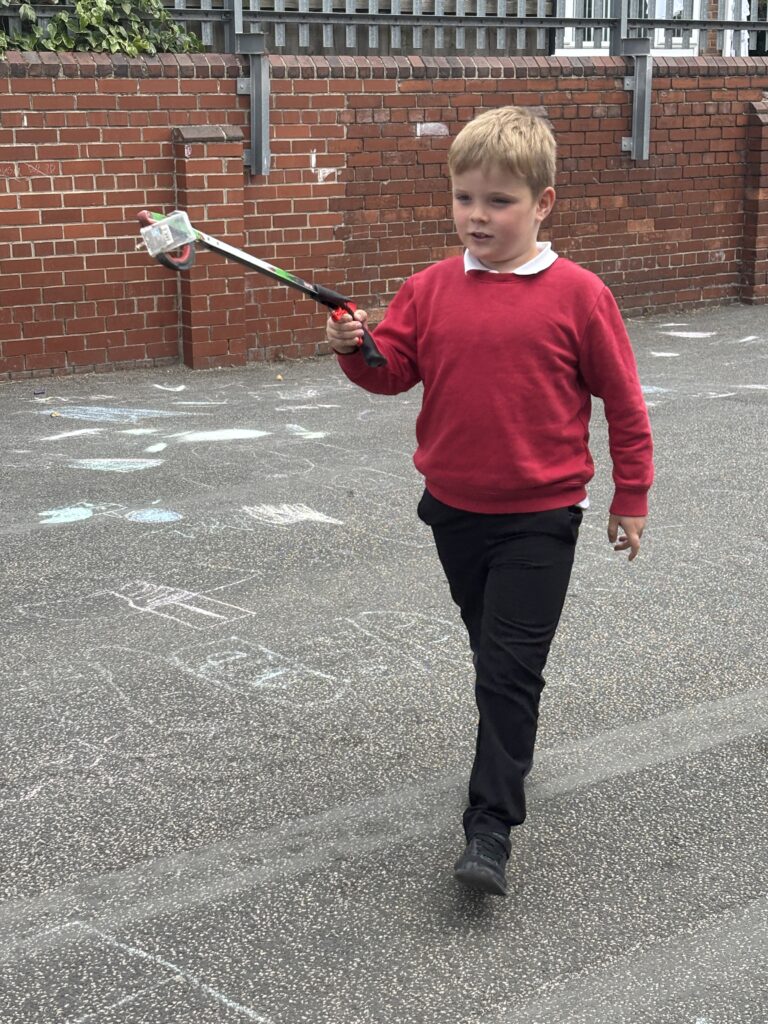
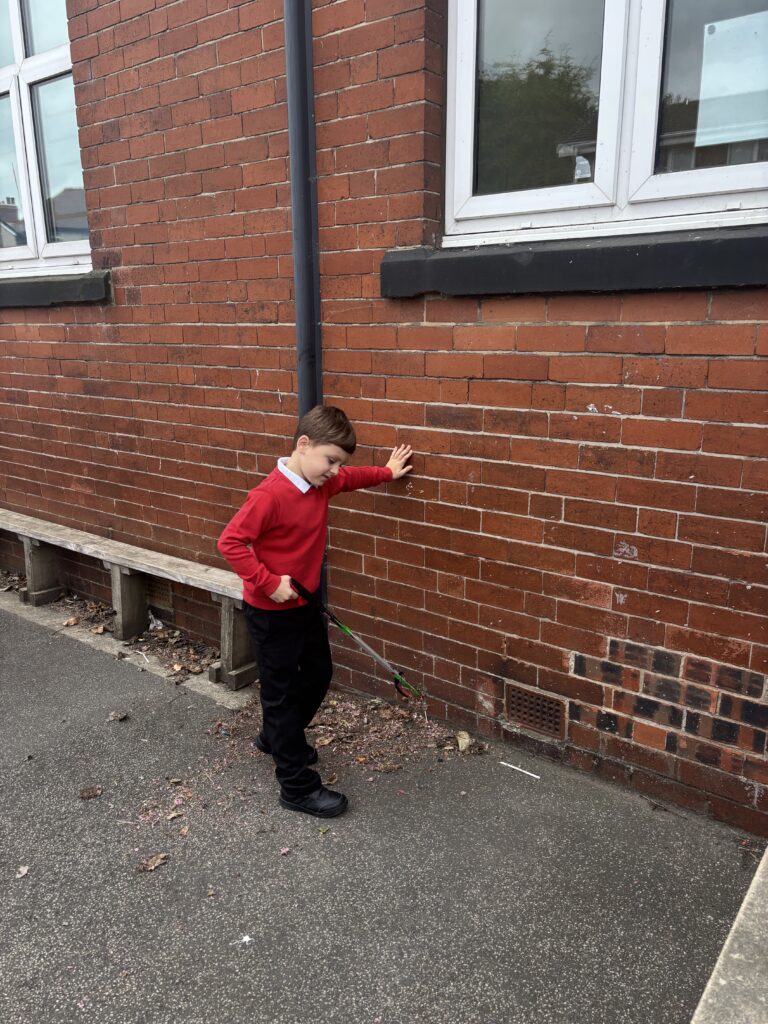
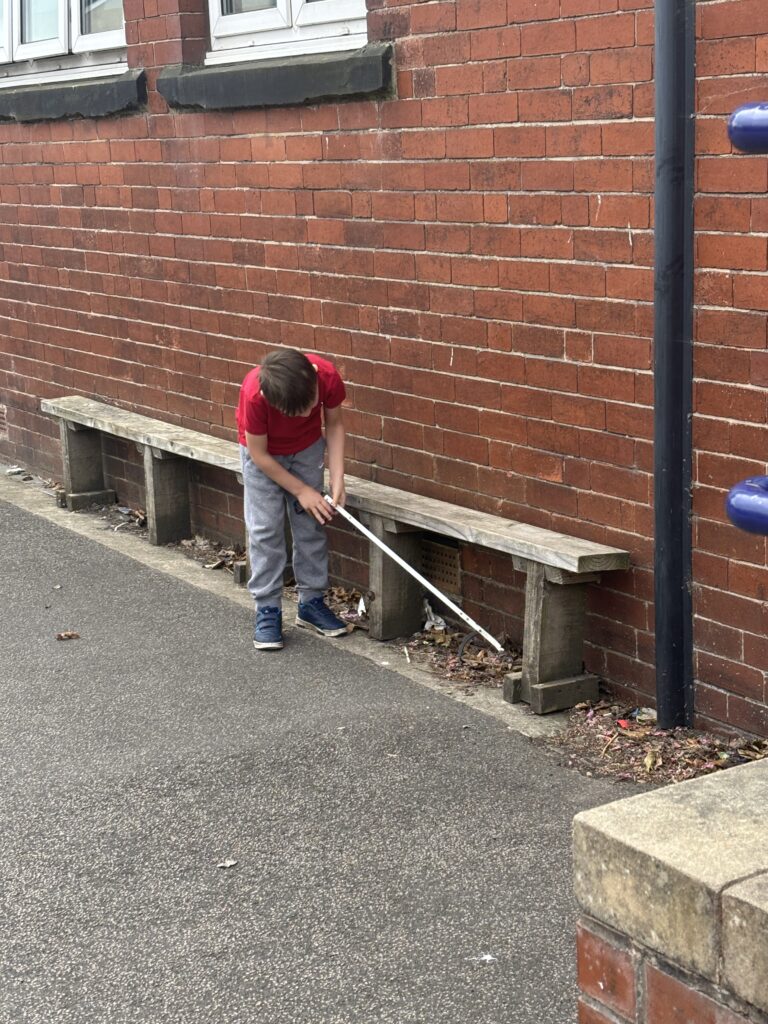
Today we experienced cleaning our planet just like Bob cleans the Moon in our book Man on the Moon! Great teamwork CrewRobson!
Today we started learning about our new book – The Man on the moon. We woke up at 6am and had a cup of tea and toast for breakfast before cycling to the rocket launch pad.
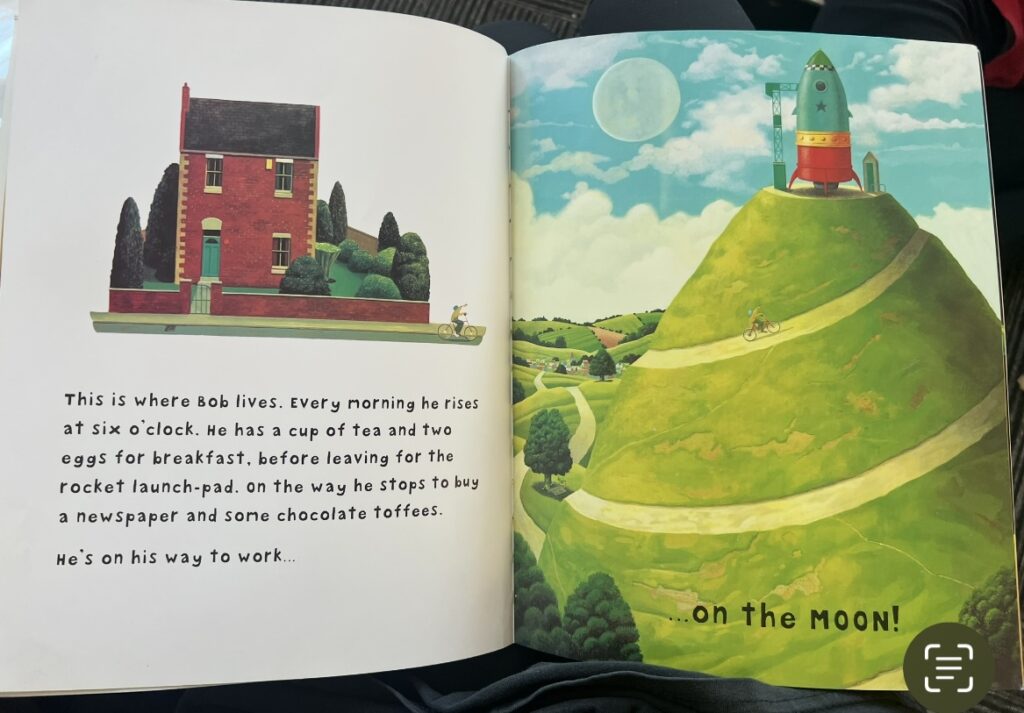
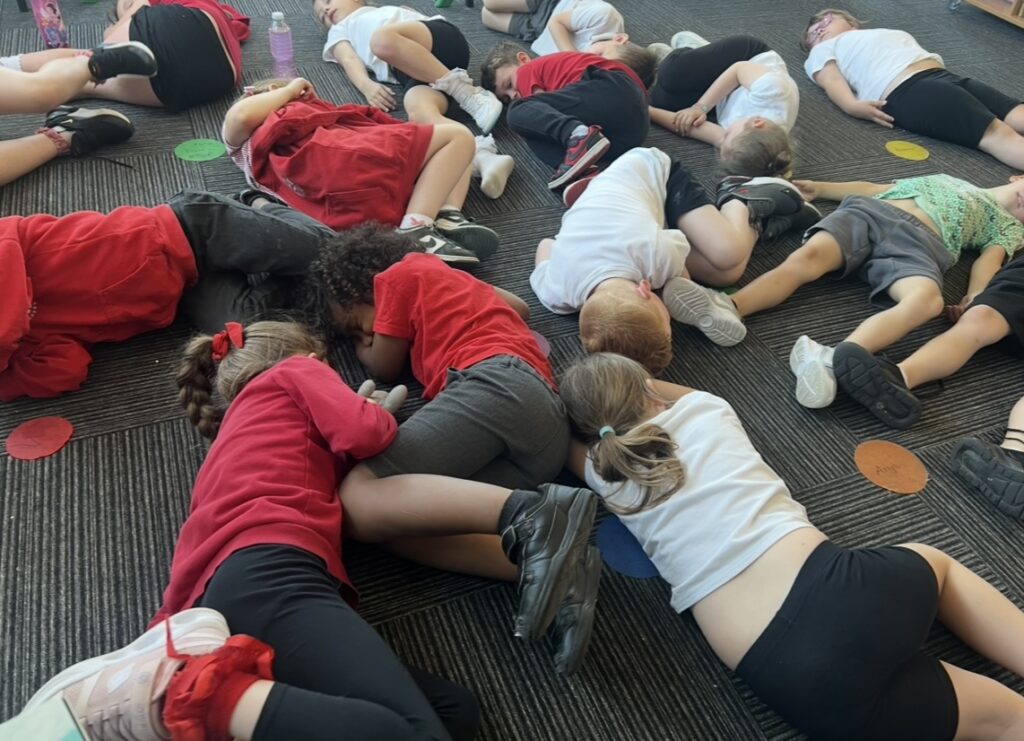
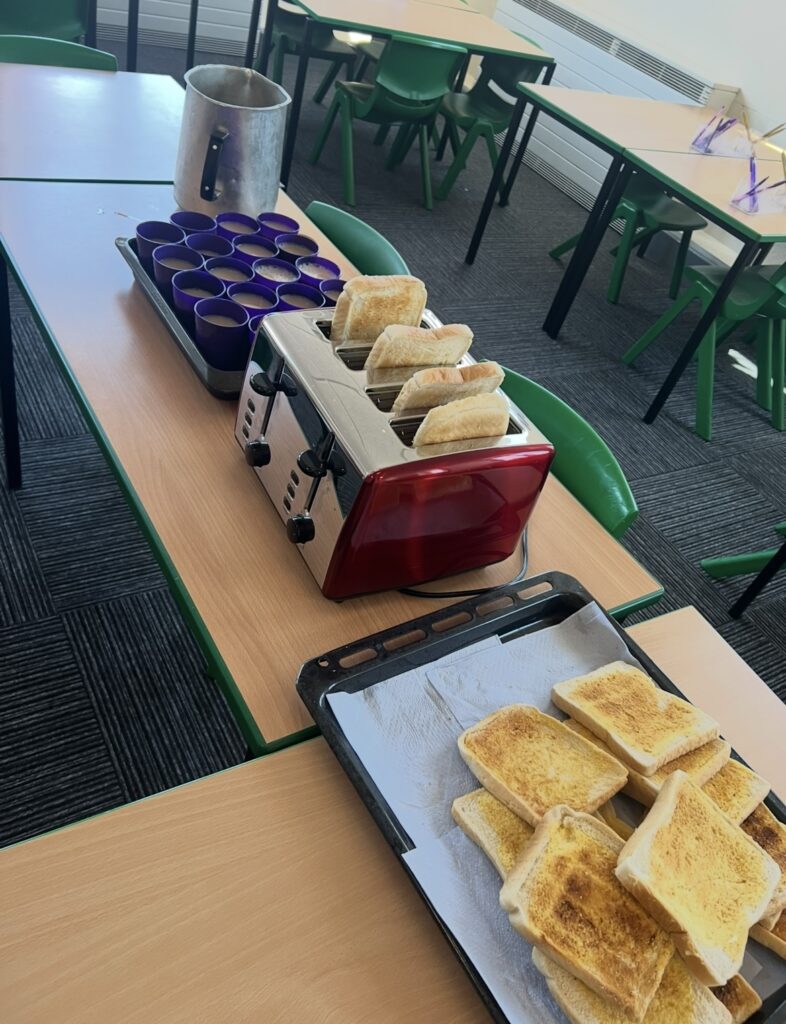
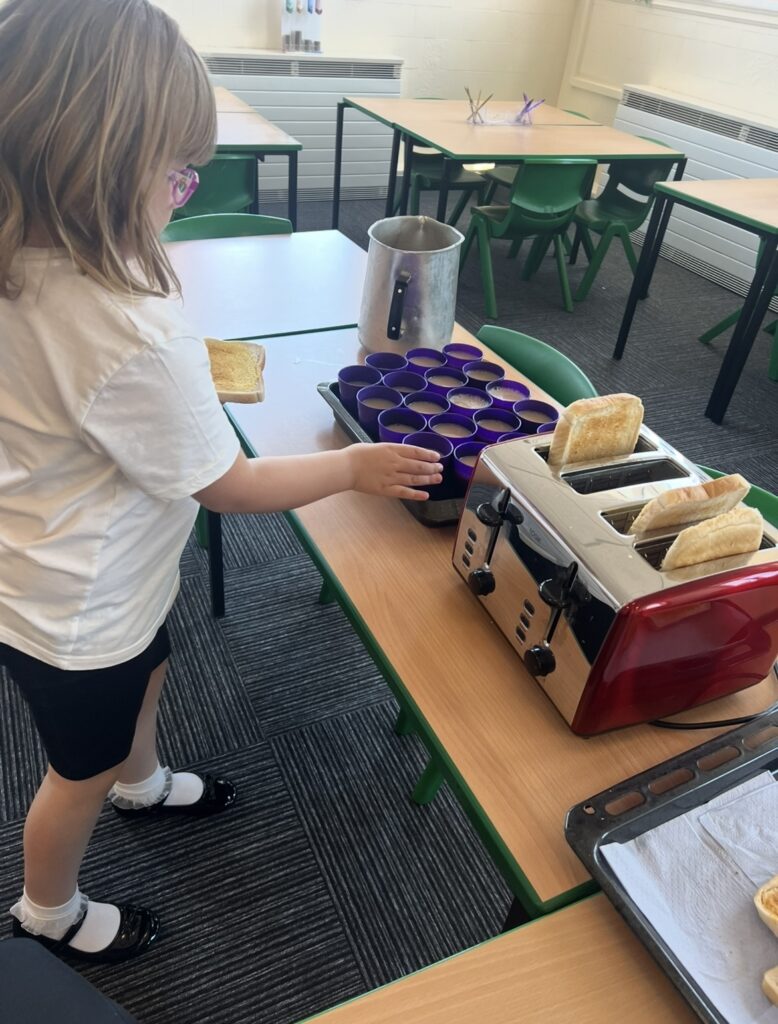
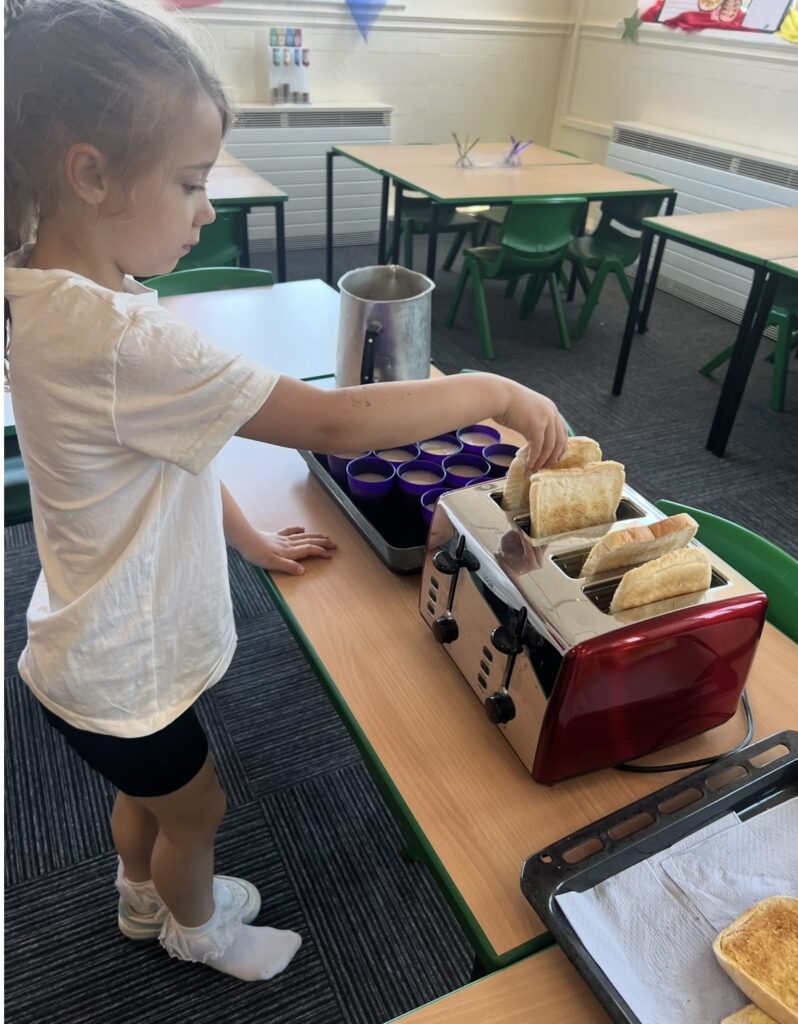
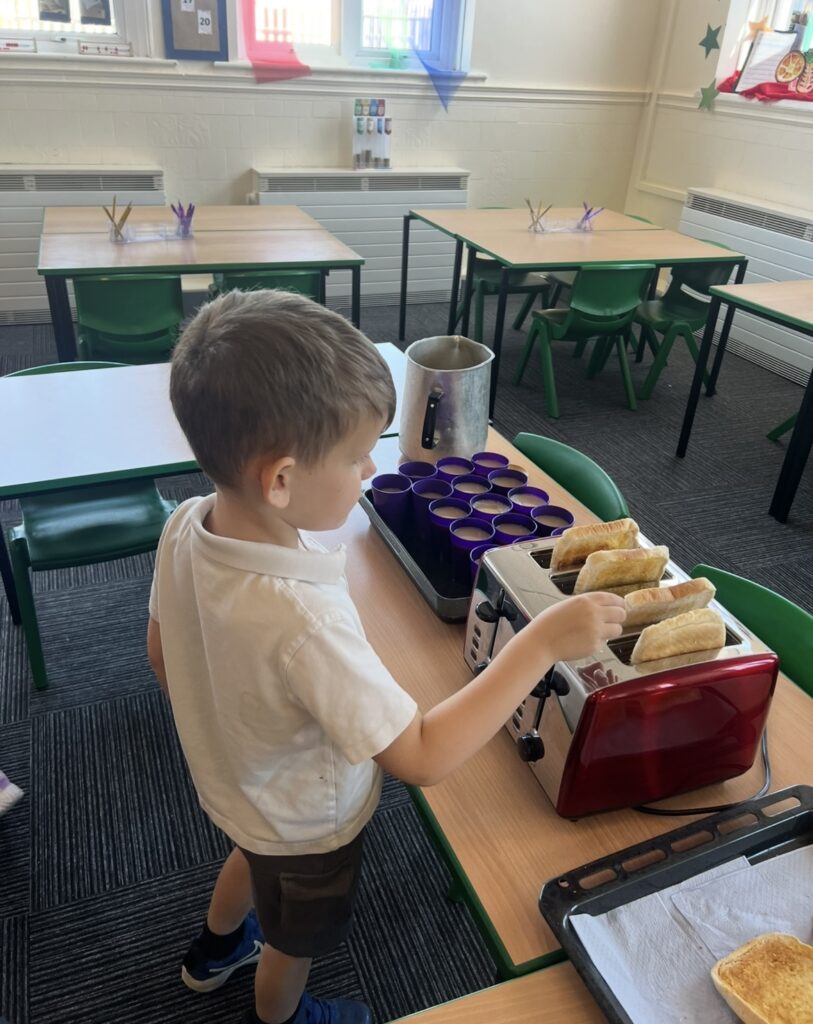
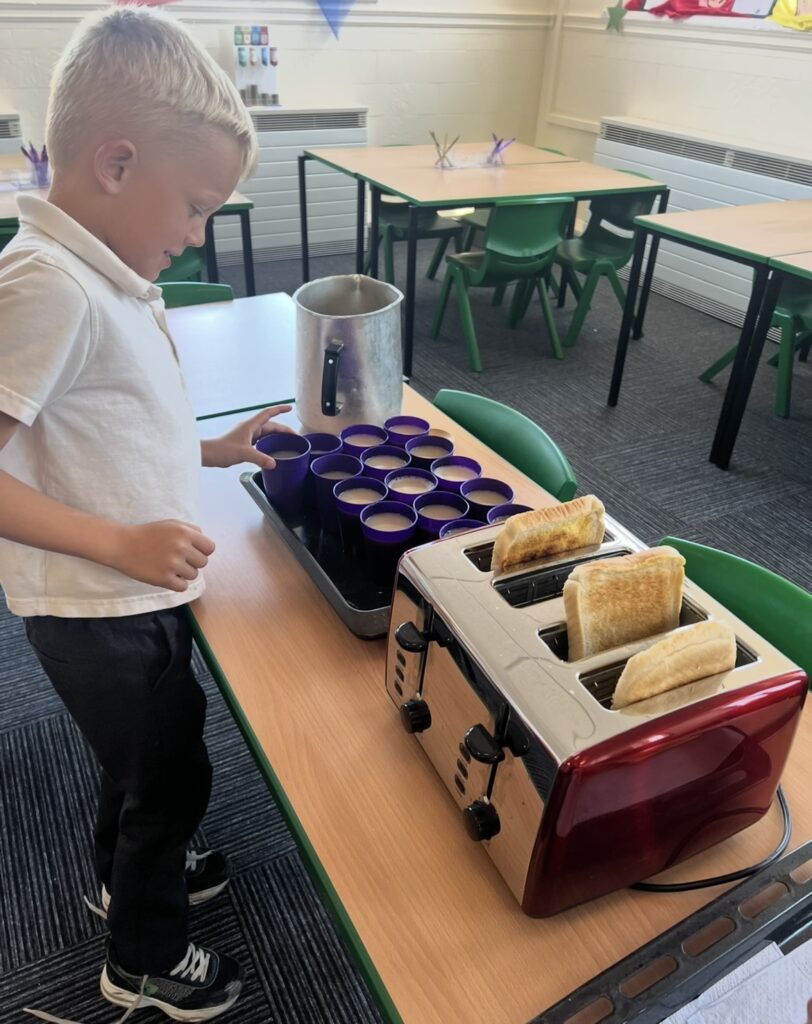
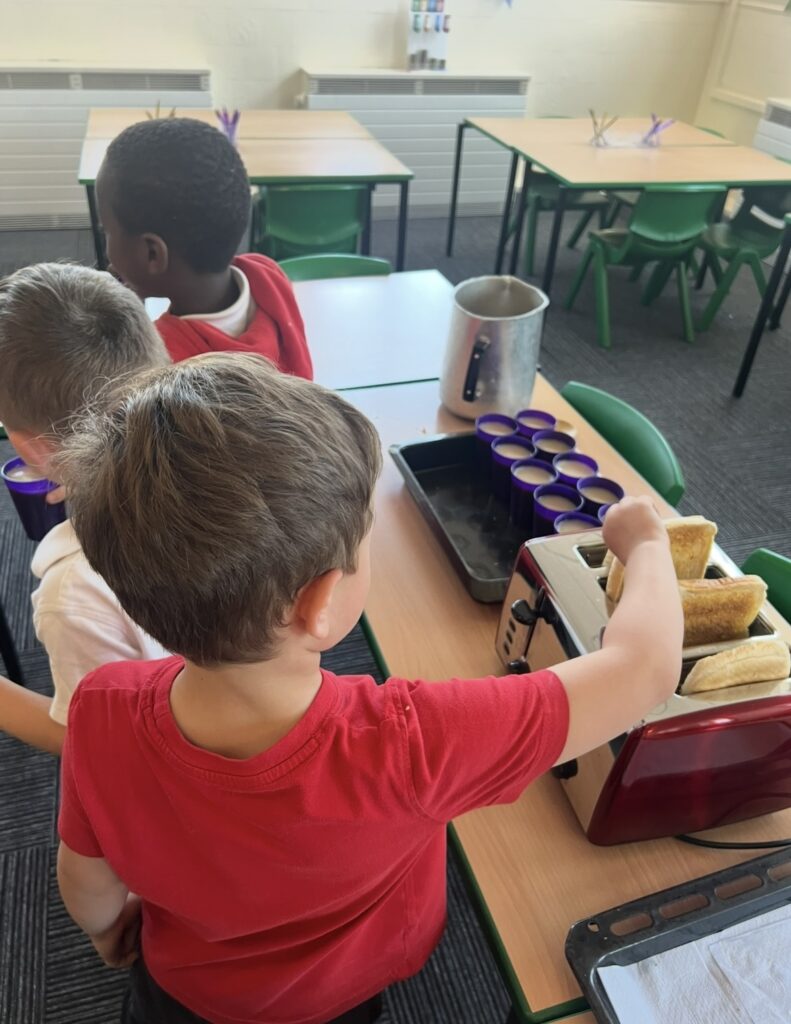
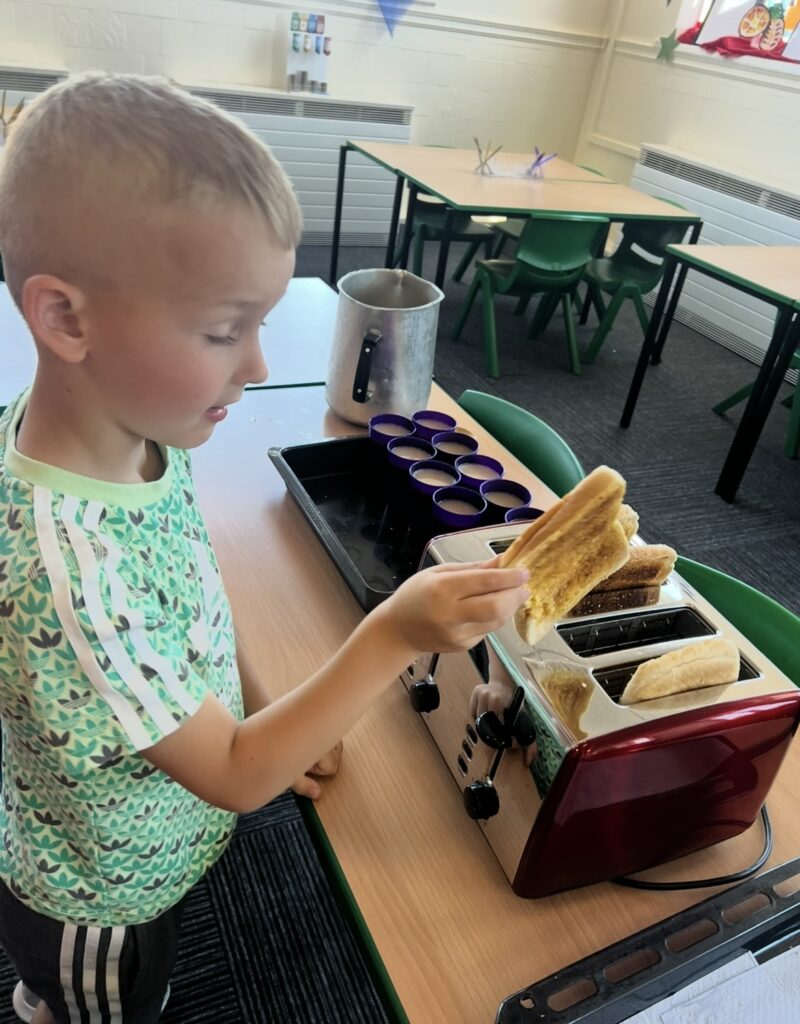
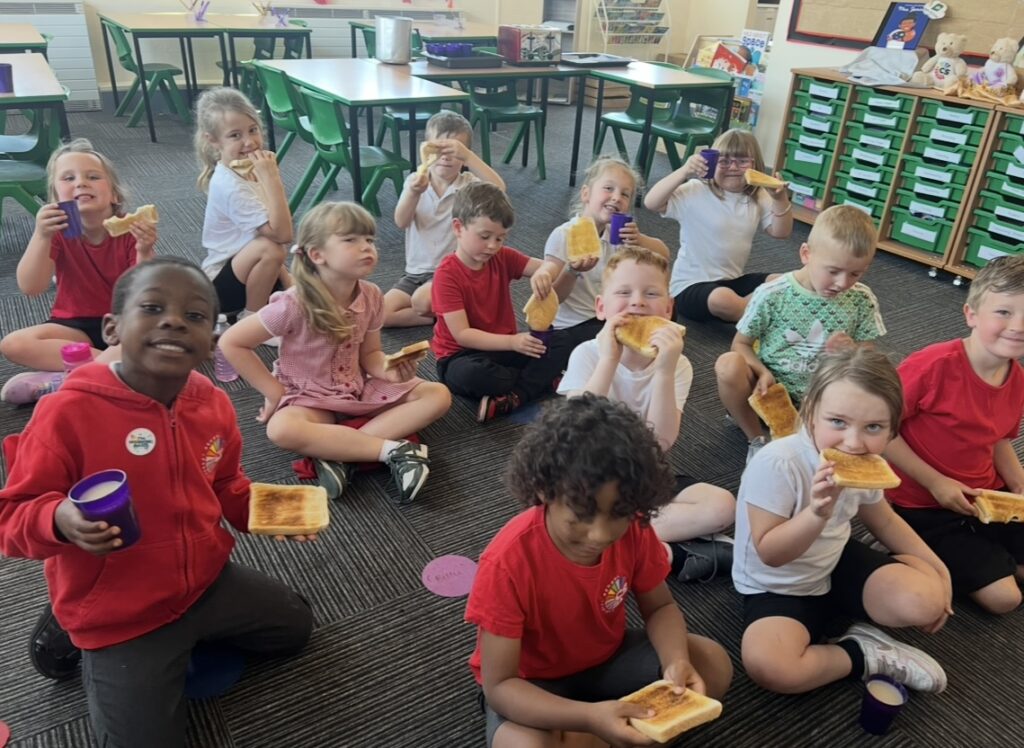
Today, Crew Hamill had their second experience lesson in which they were identifying the features of a non-chronological report. We worked as a crew to look at an example report, sharing ideas about what we noticed – the title, paragraphs and pictures etc. We then looked at a ‘non-chronological report checklist’ and used this to identify further features such as subheadings and an introduction. Once we were comfortable that we understood the features, we worked in pairs to organise a non-chronological report that had been jumbled up. We had to work out which subheading matched which paragraph, identify the title, introduction and conclusion, and then figure out which order we would put the information in before deciding where the pictures would go. Once we had done this, we labelled each of the features and explained why they were important. To consolidate our learning, we played ‘checklist challenge’ in which we had 3 minutes to write down as many features as we could remember before seeing who had remembered the most!
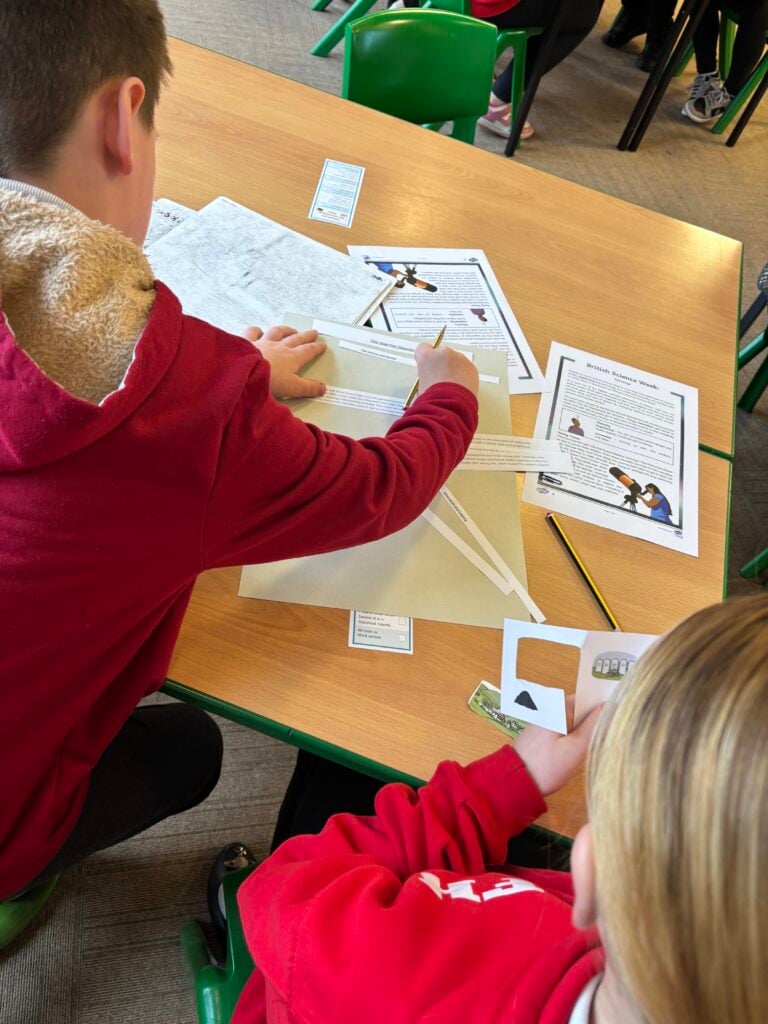
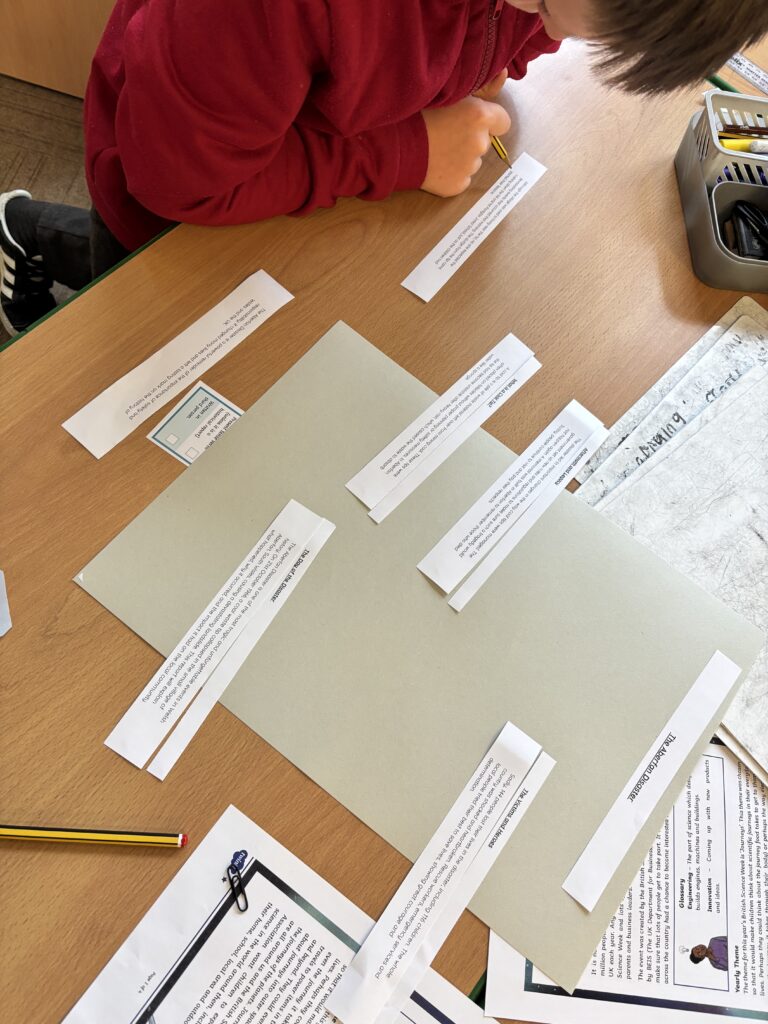
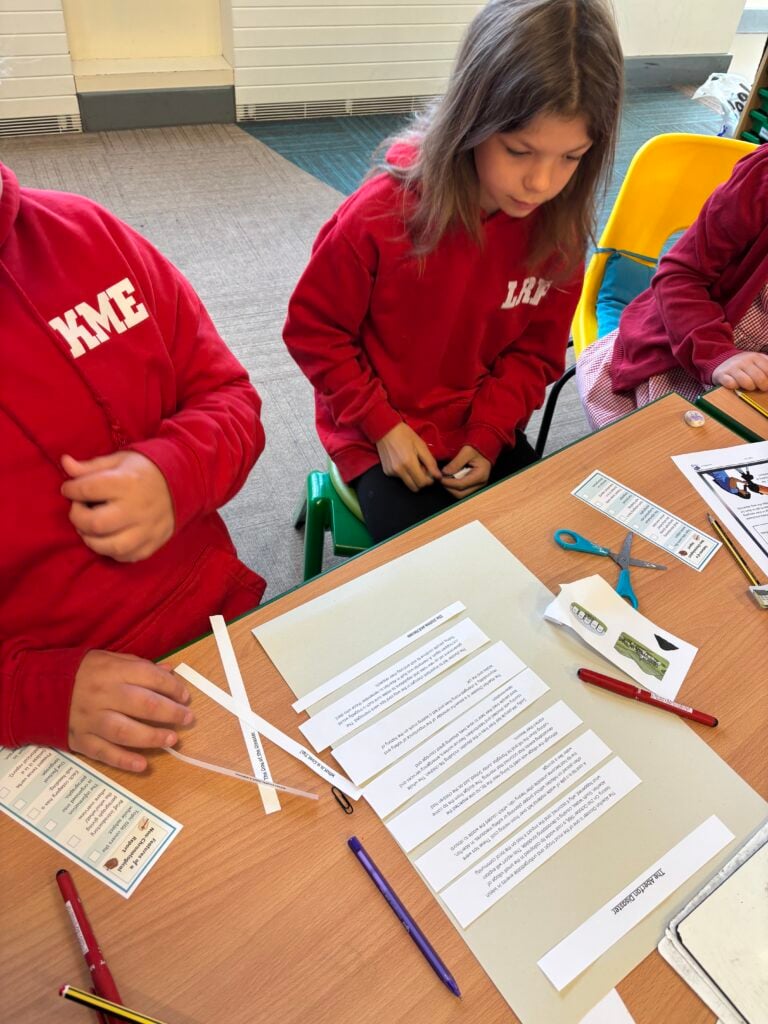
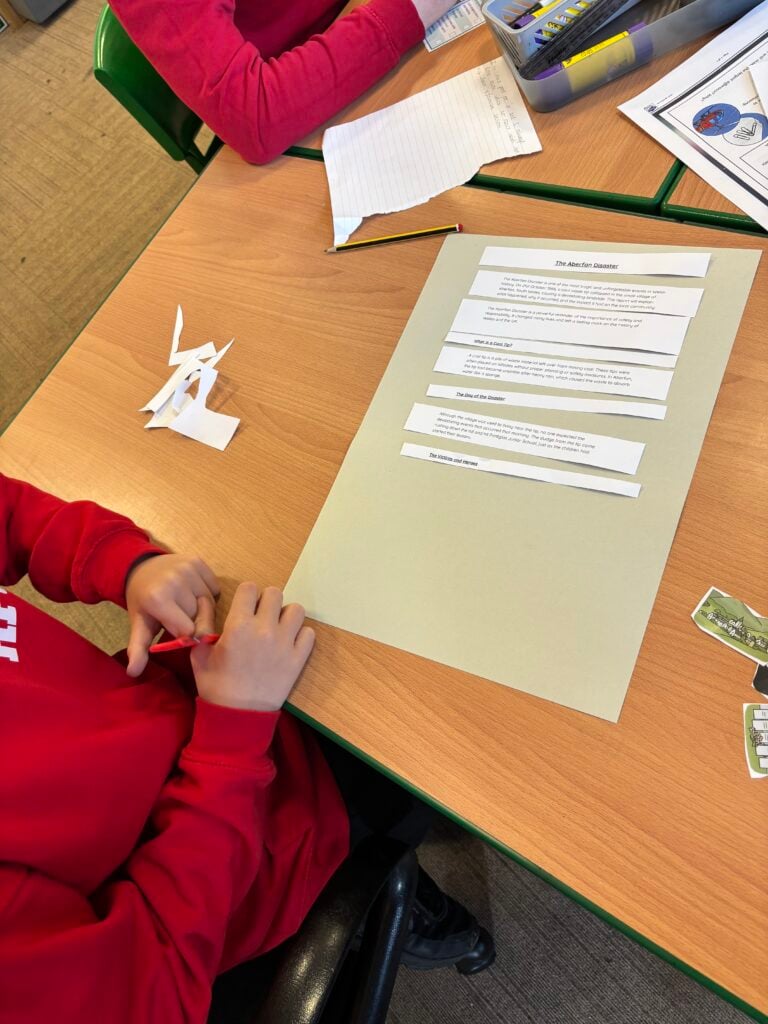
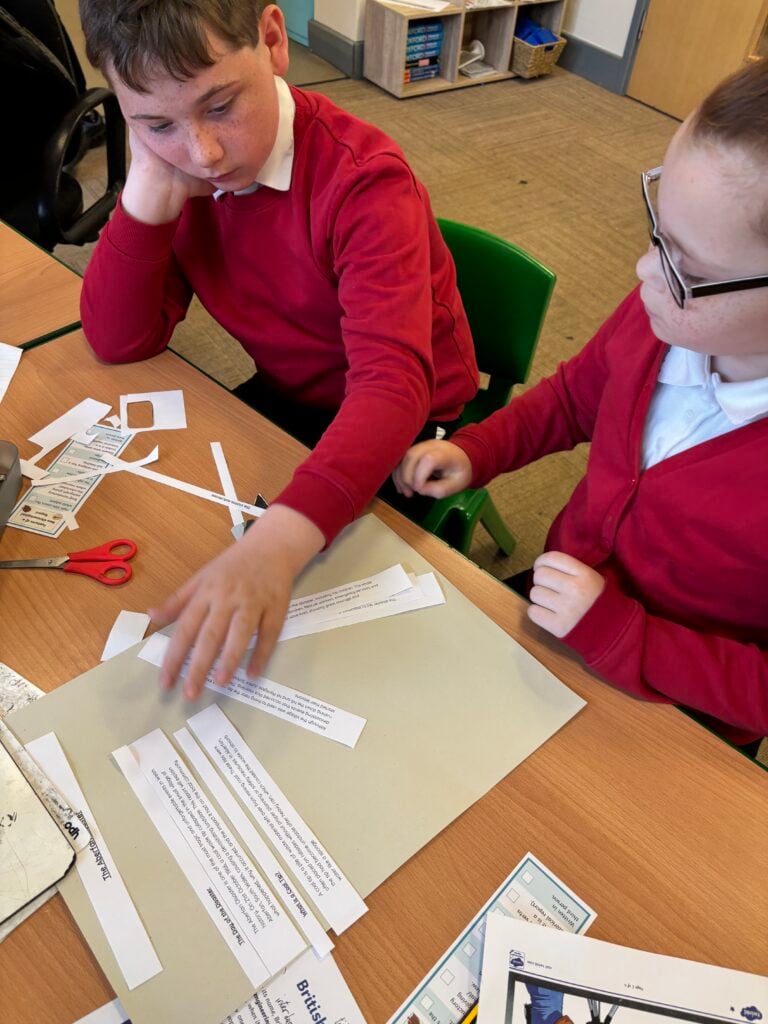
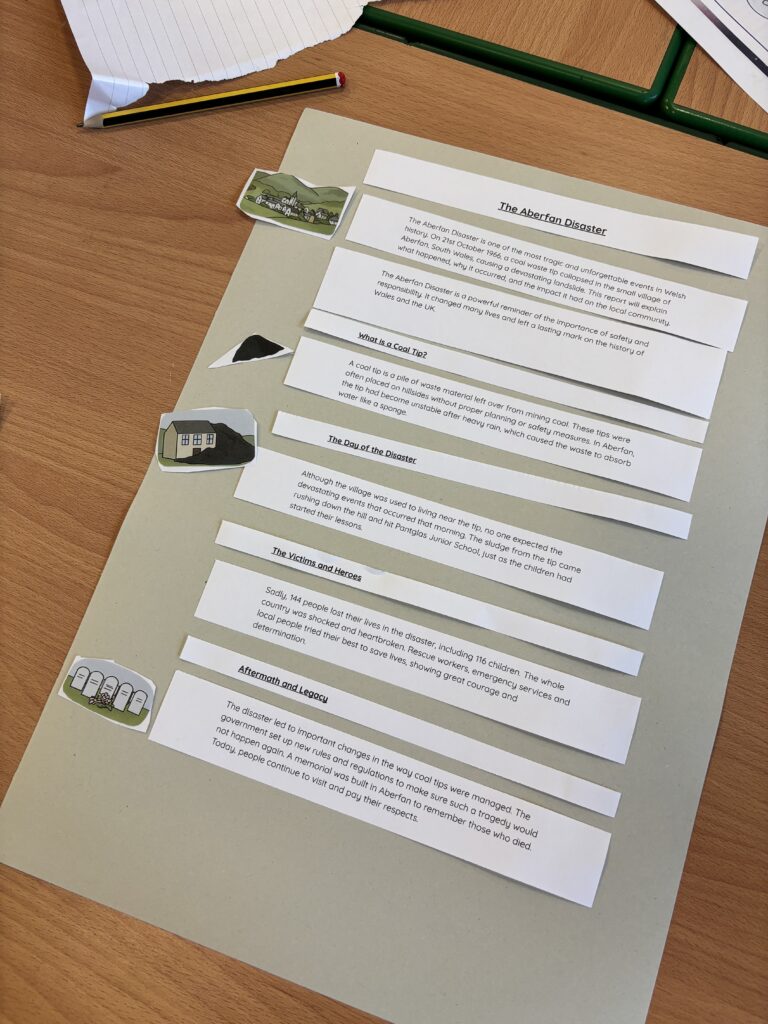
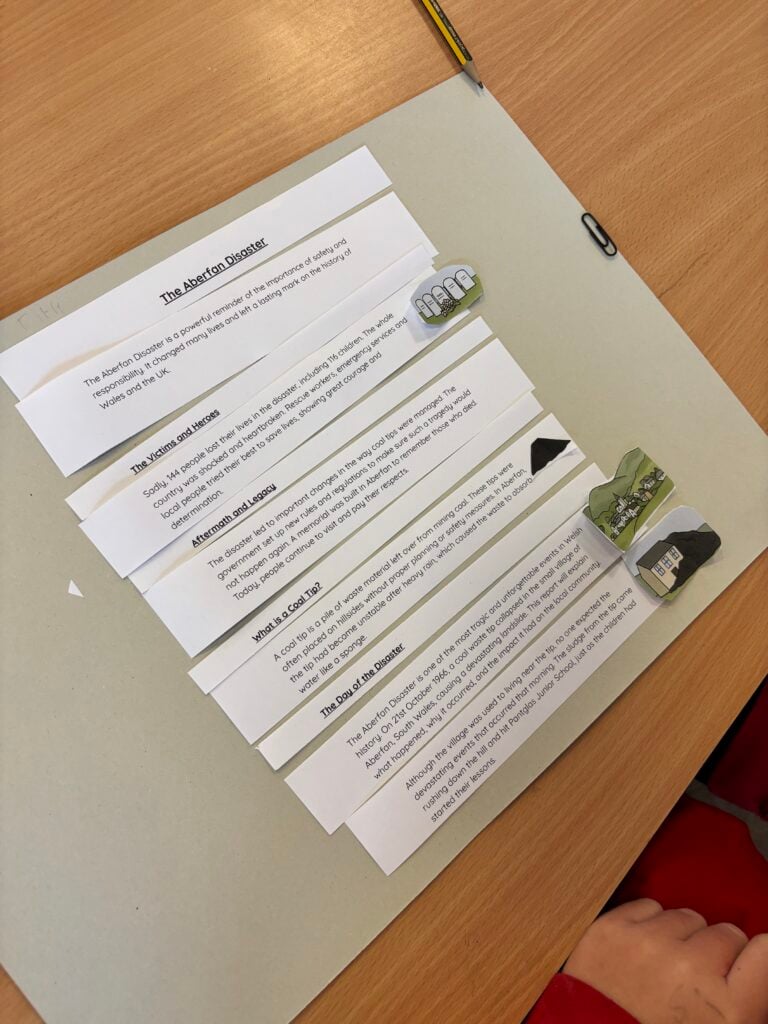
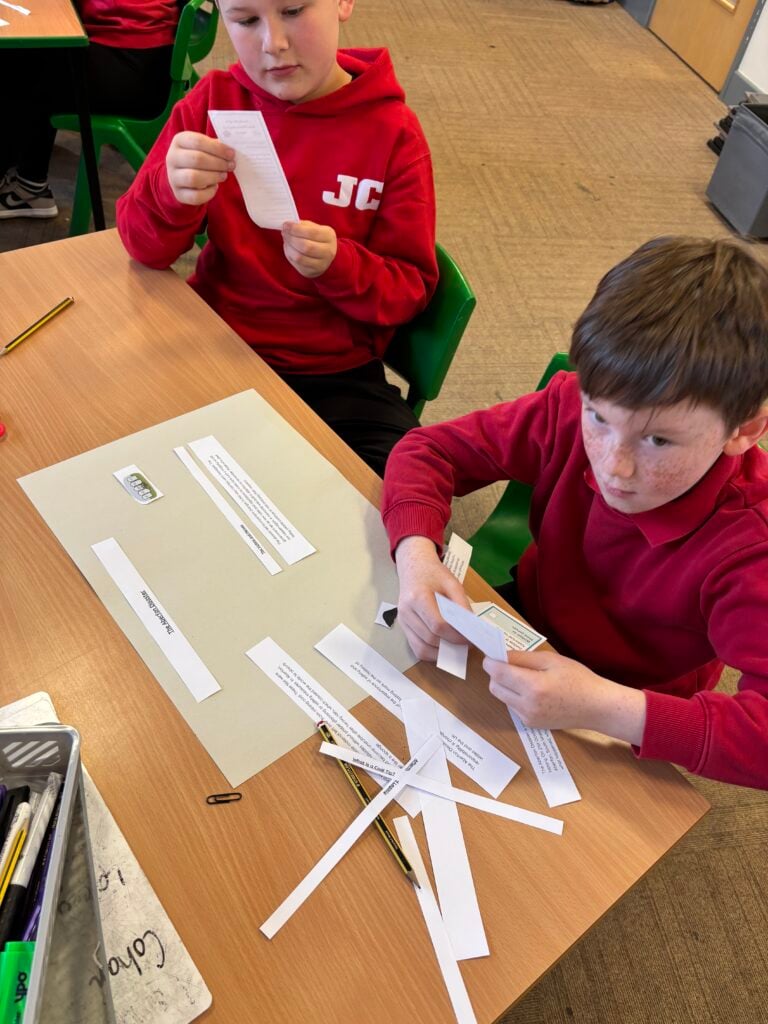
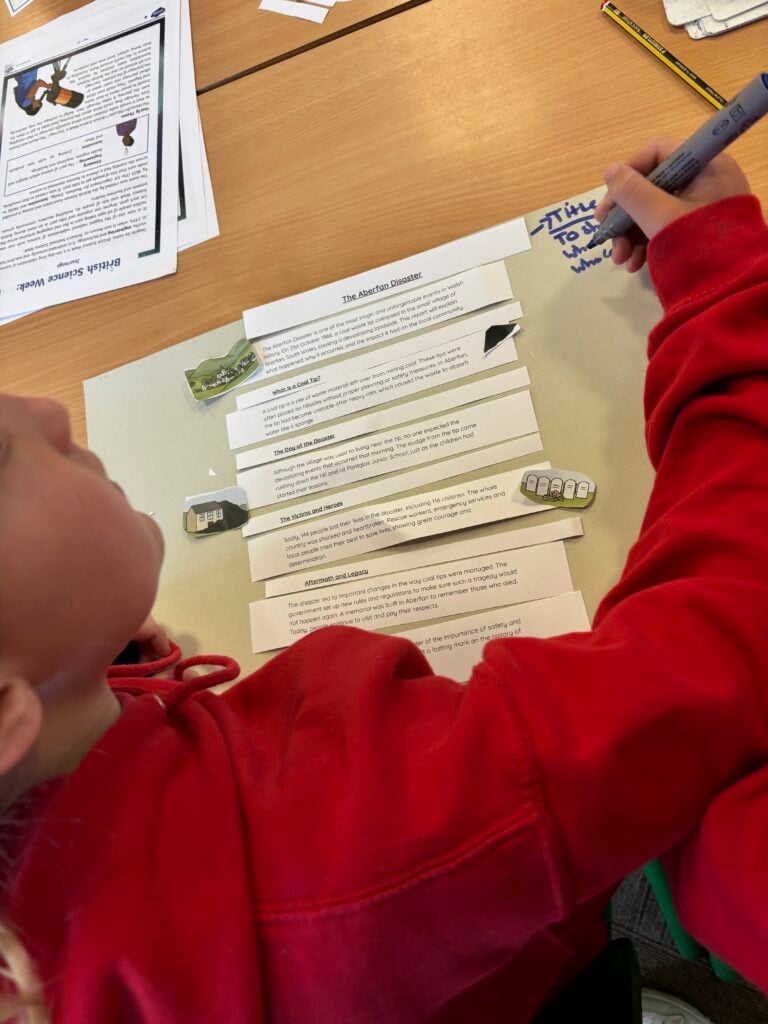
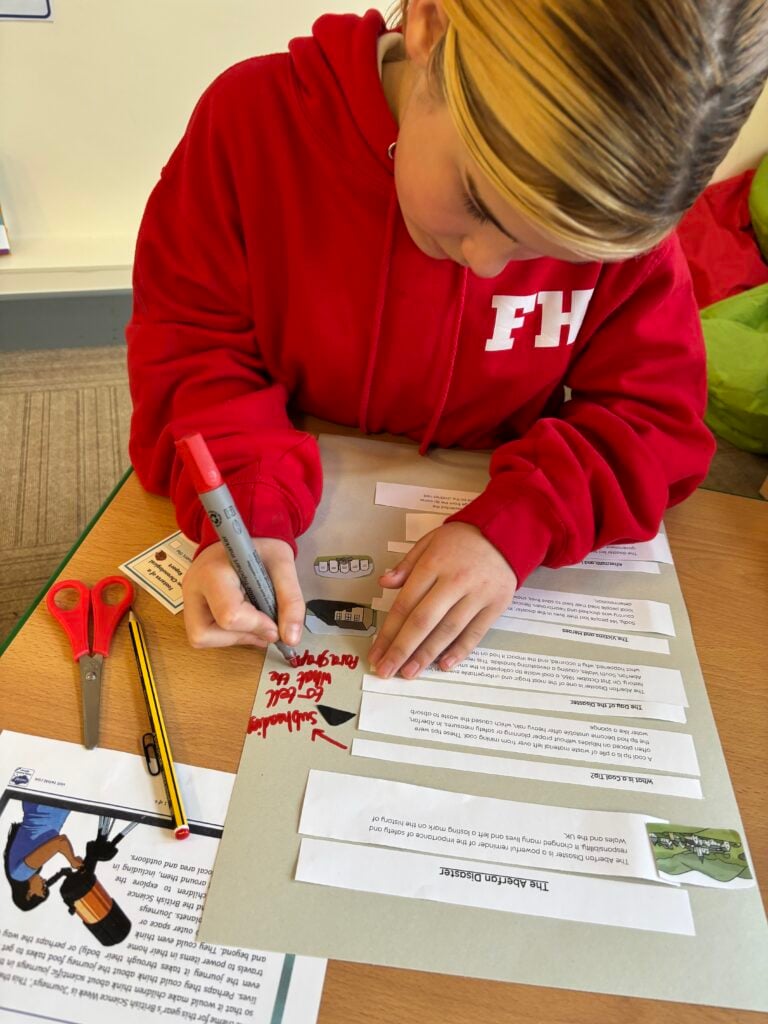
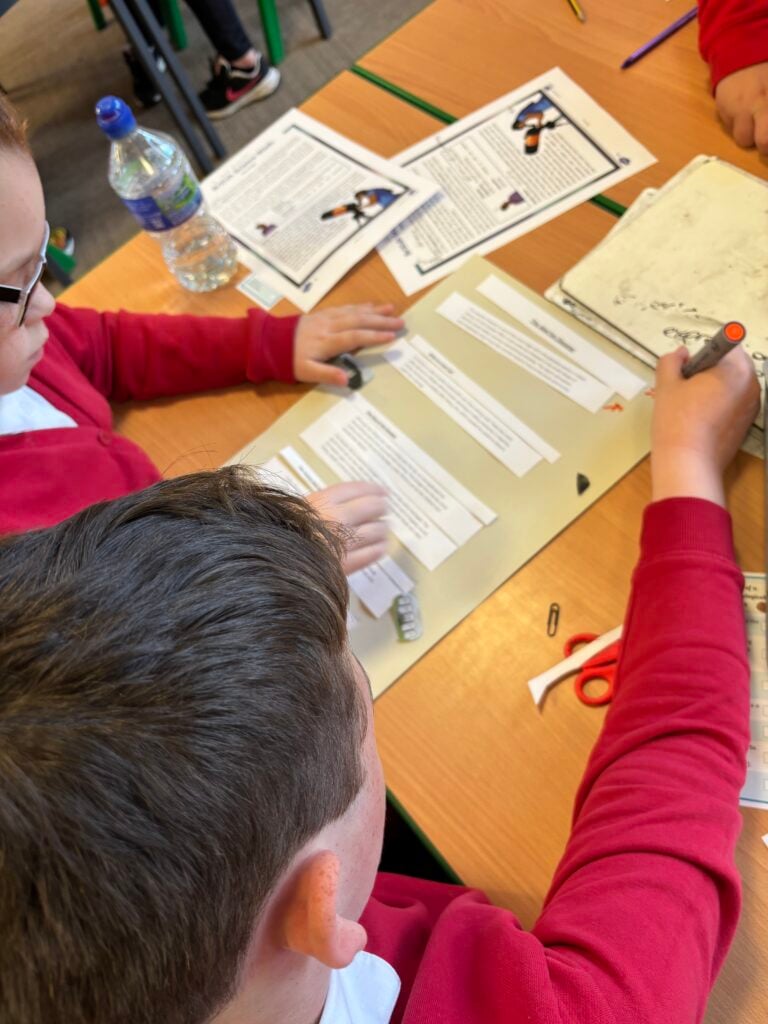
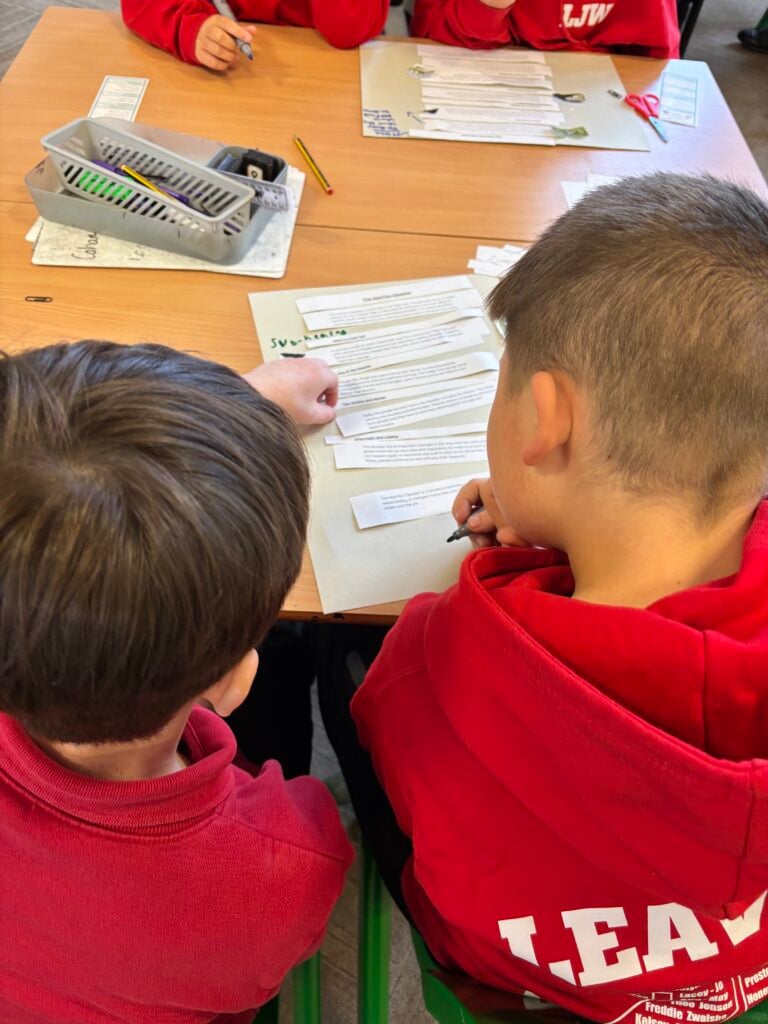
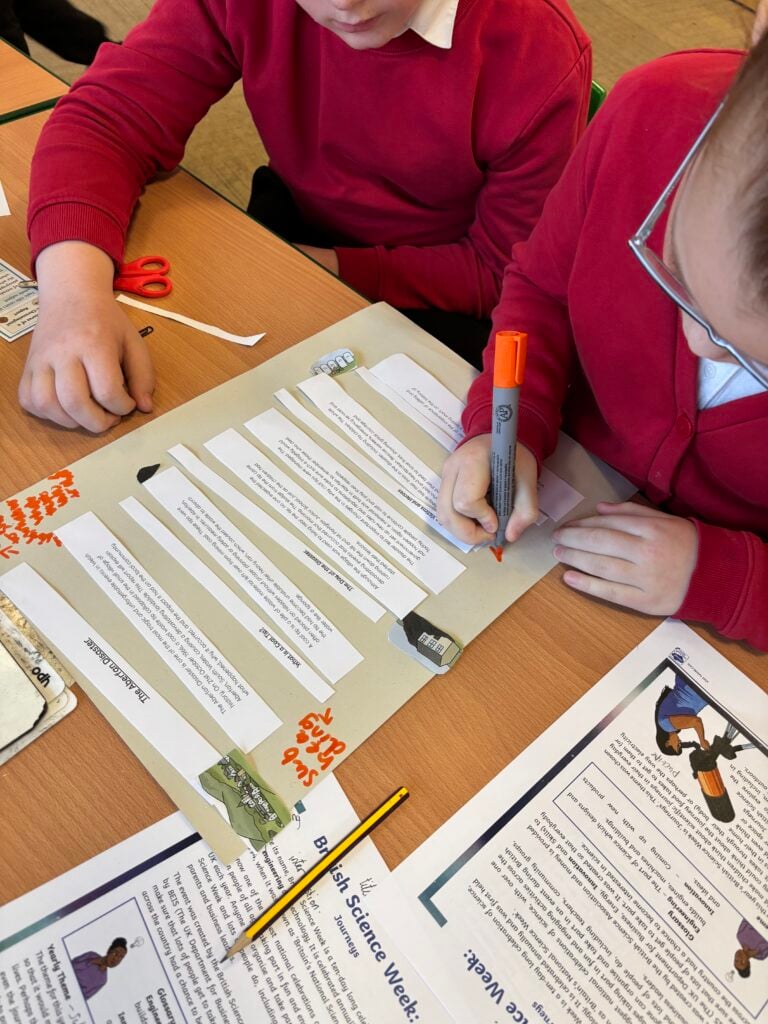
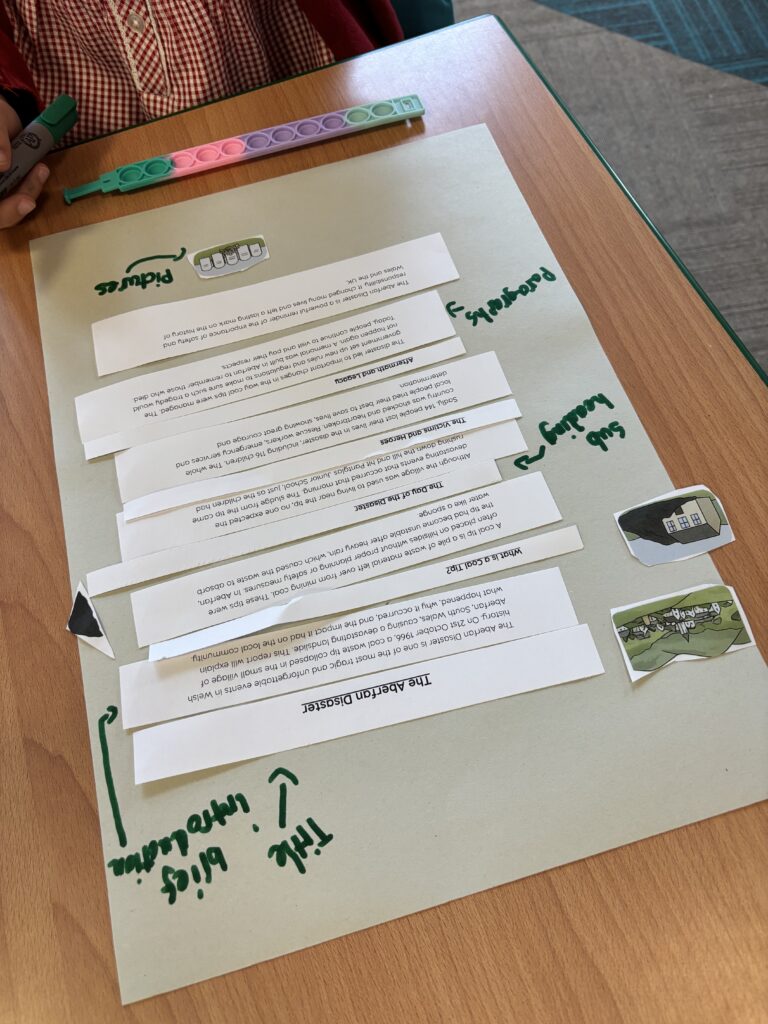
We are working hard on our information texts in Crew MT. We are really focusing on conjunctions and adverbials along with using our knowledge on volcanoes to compose our writing.
